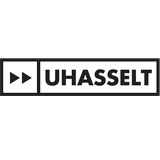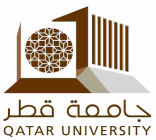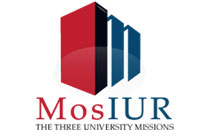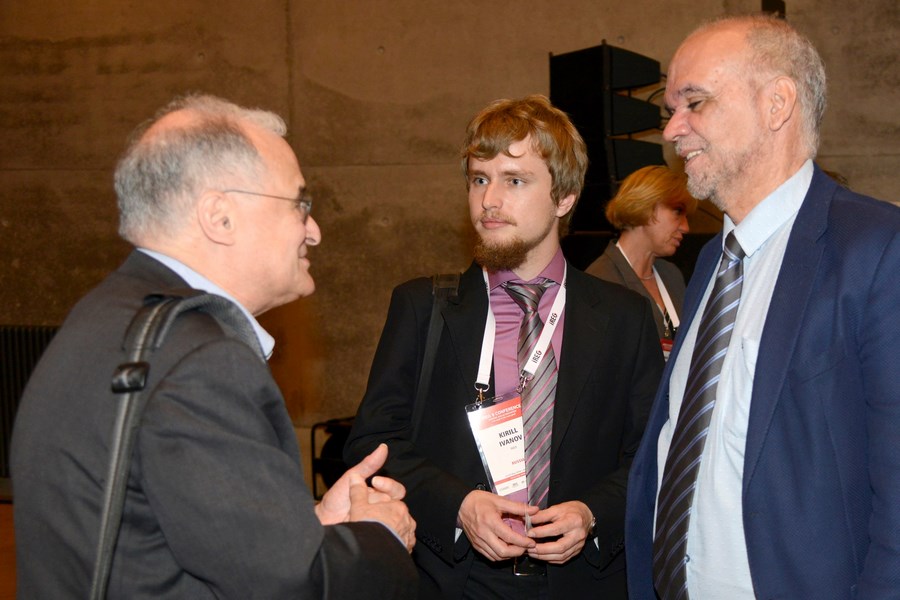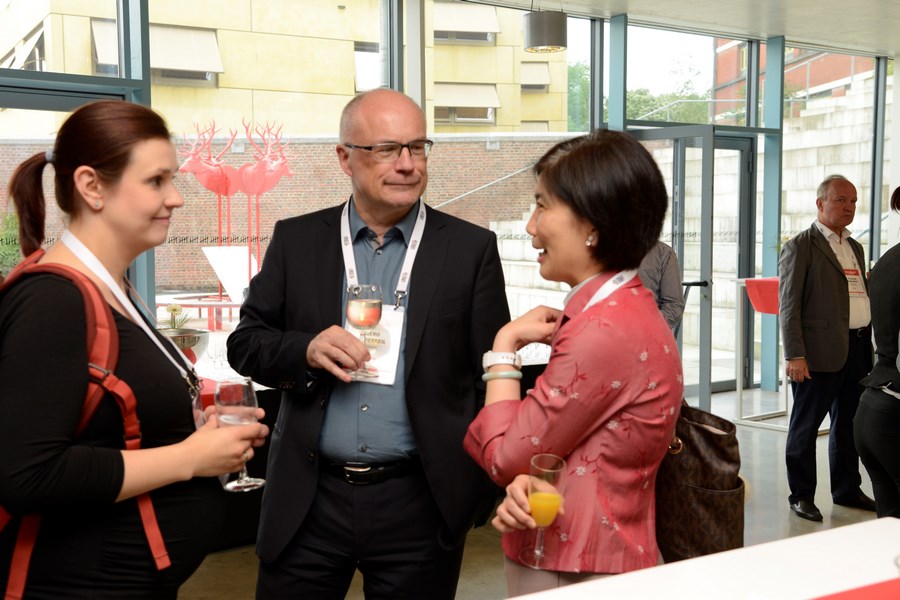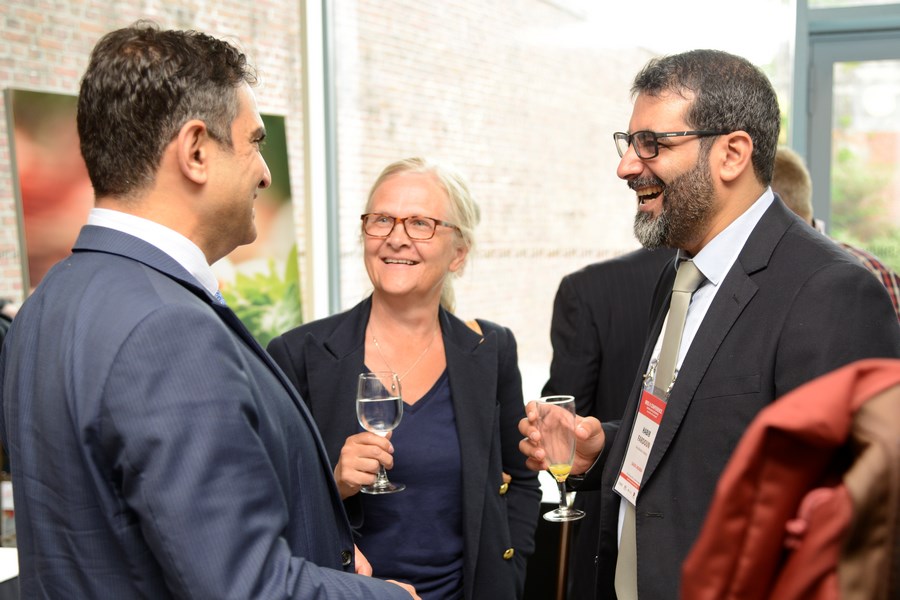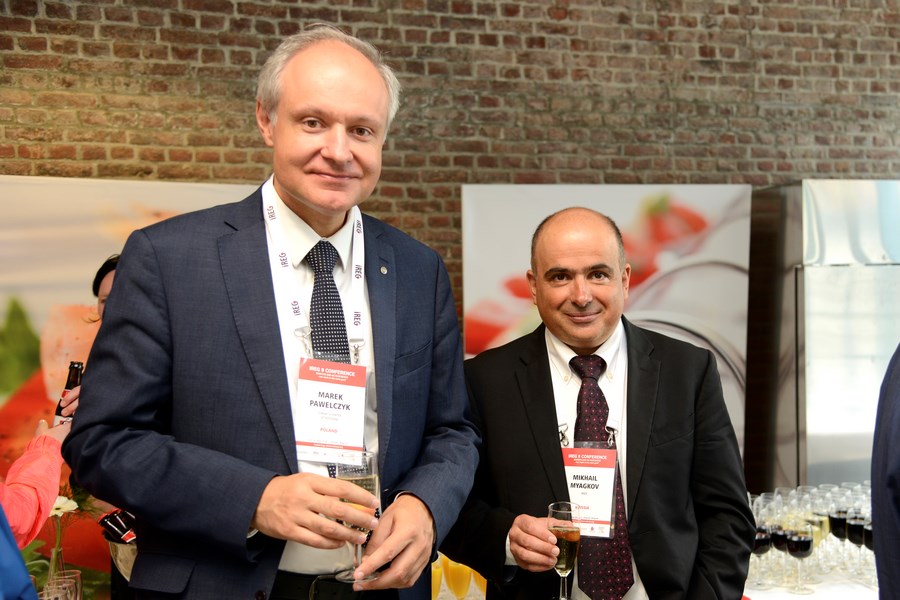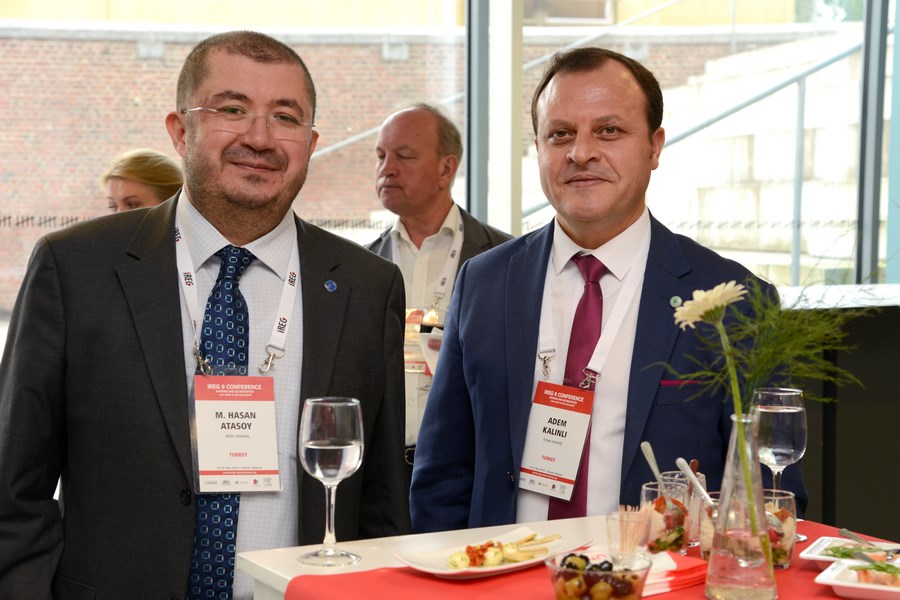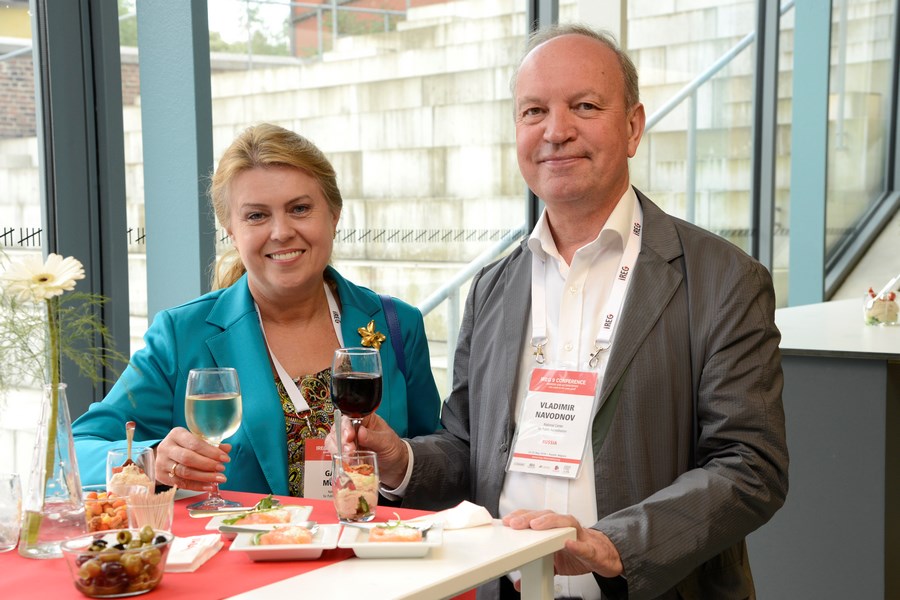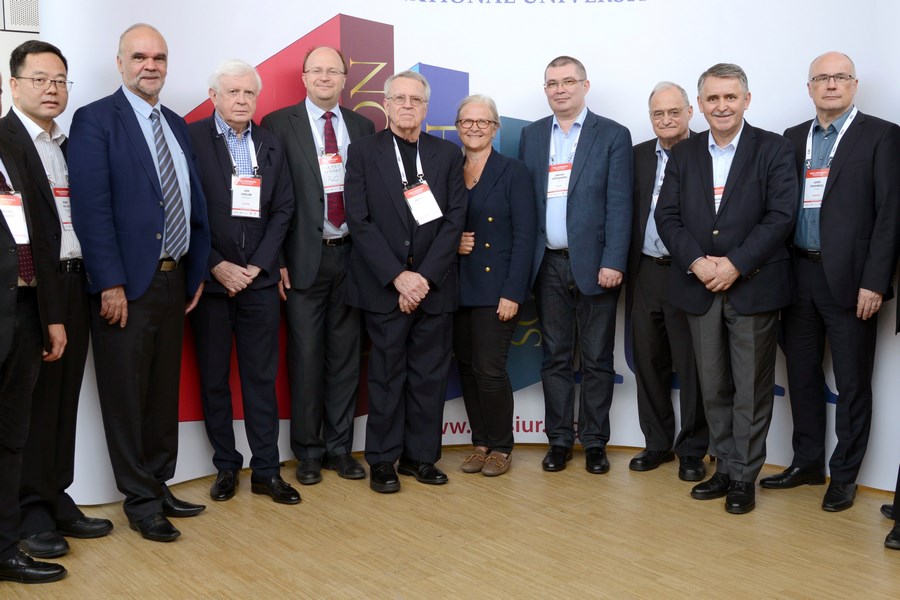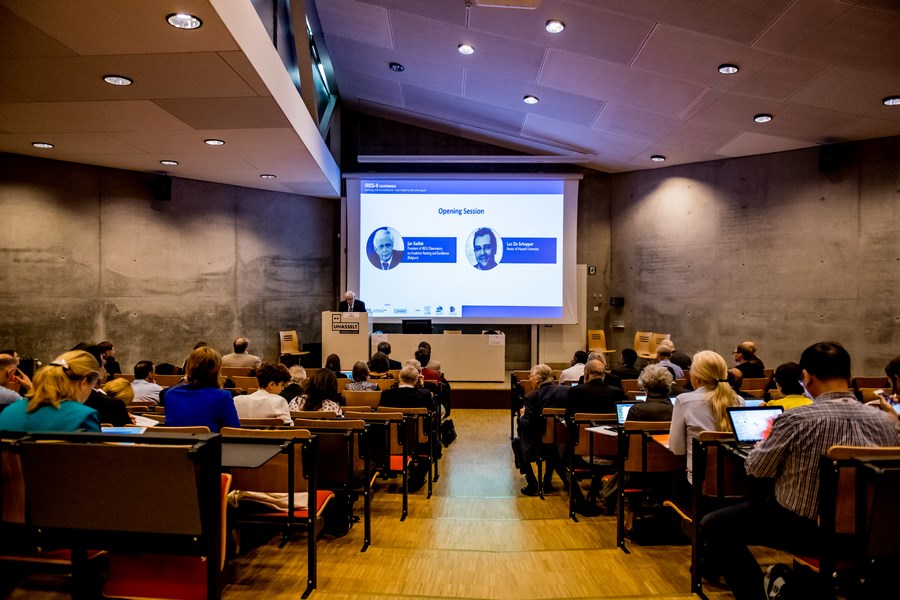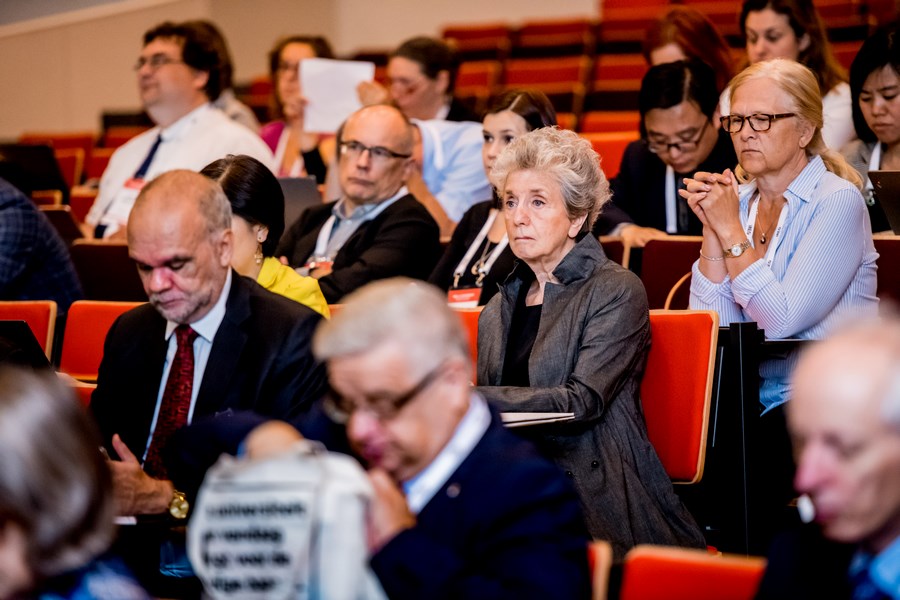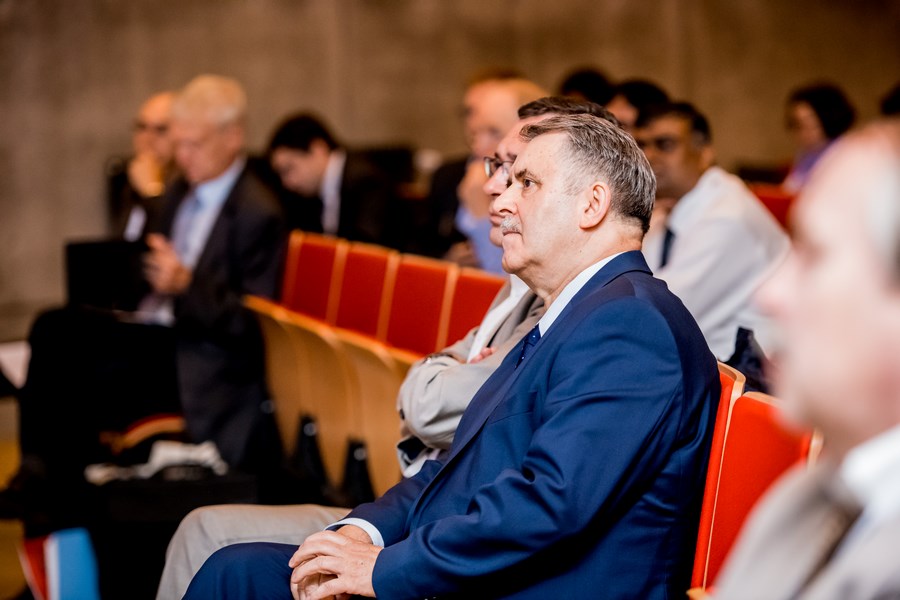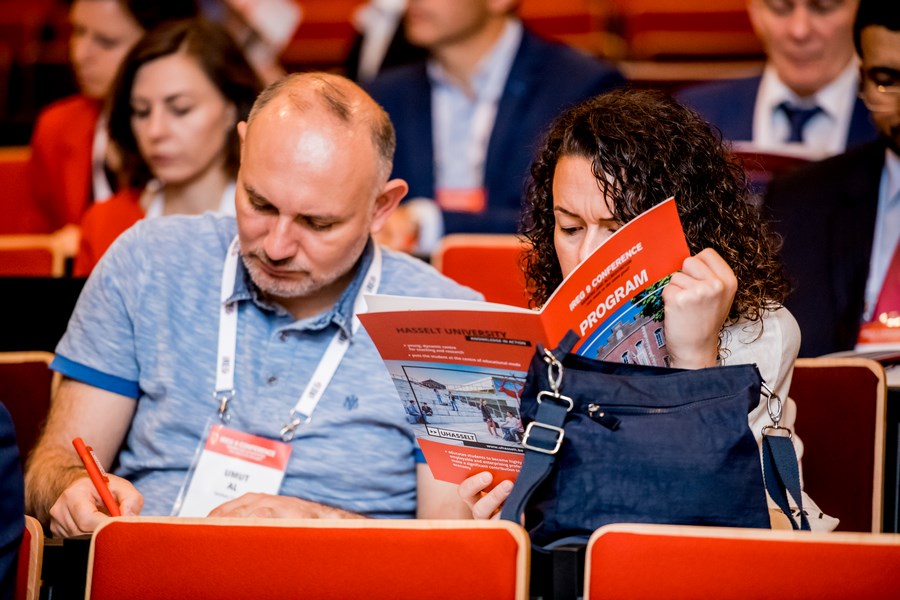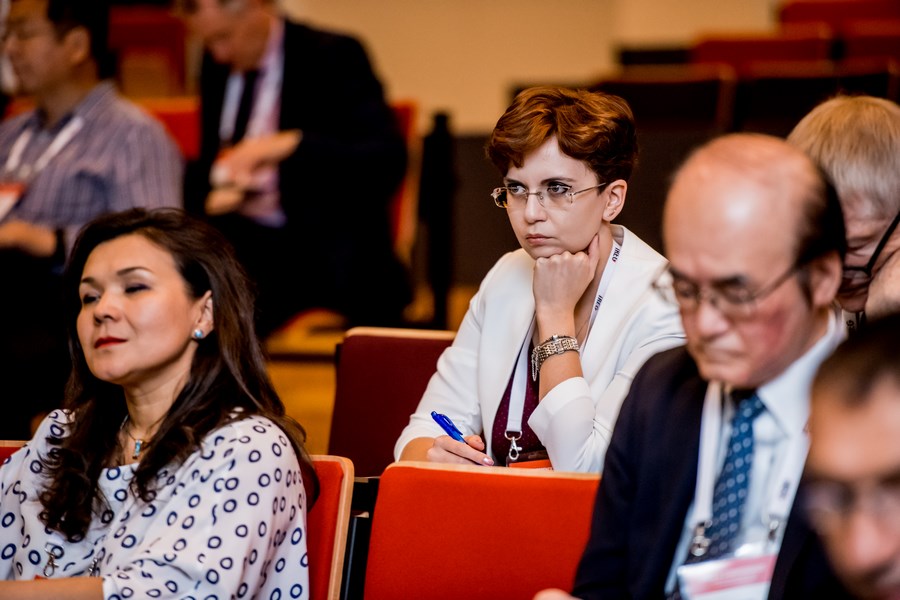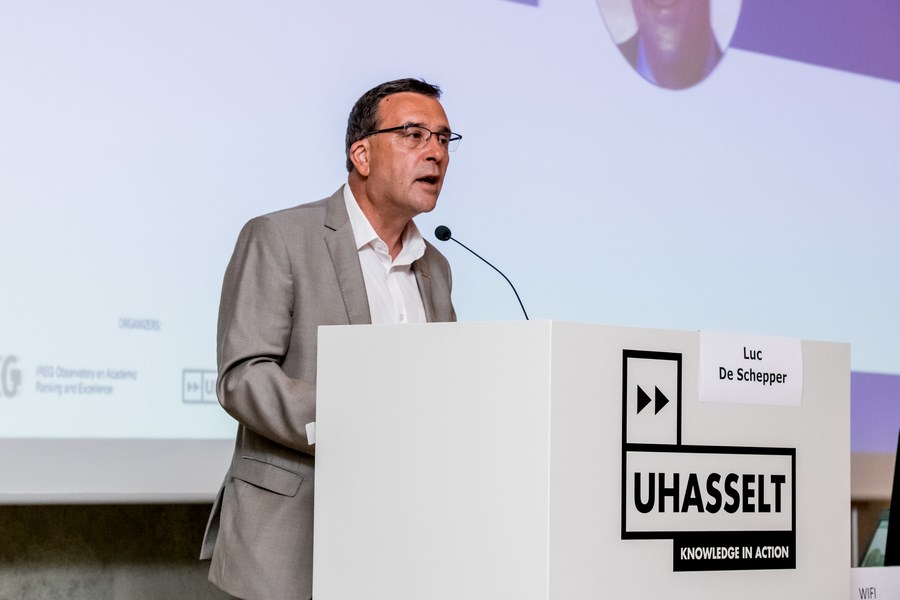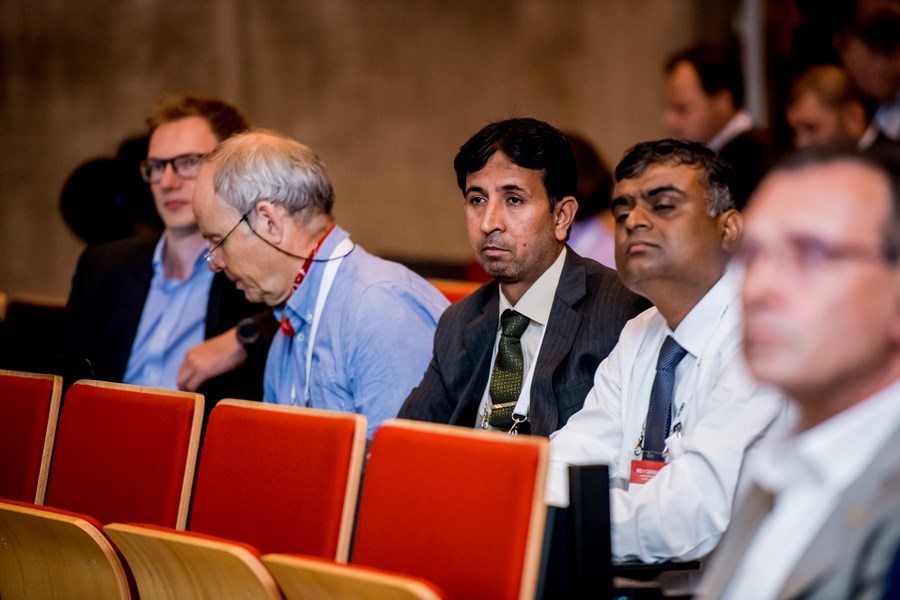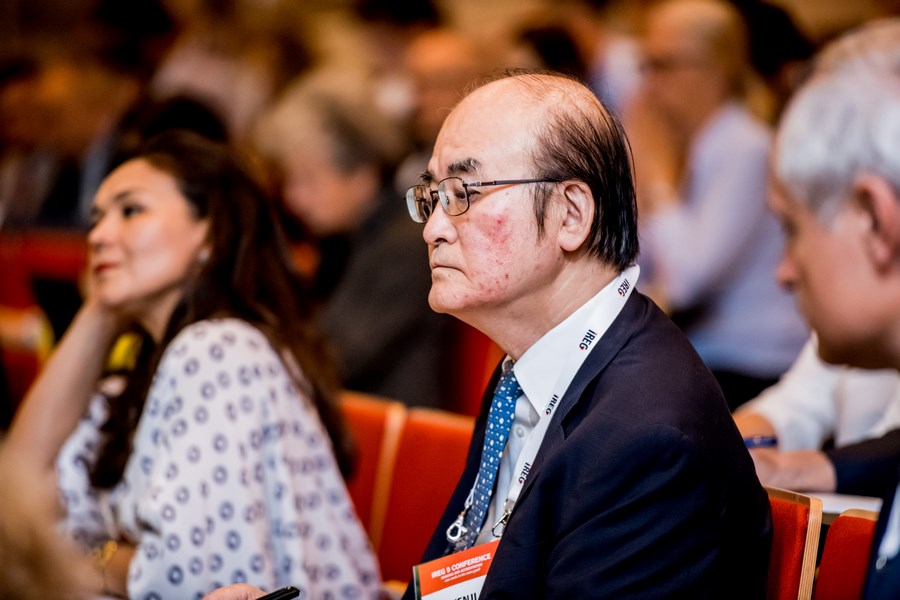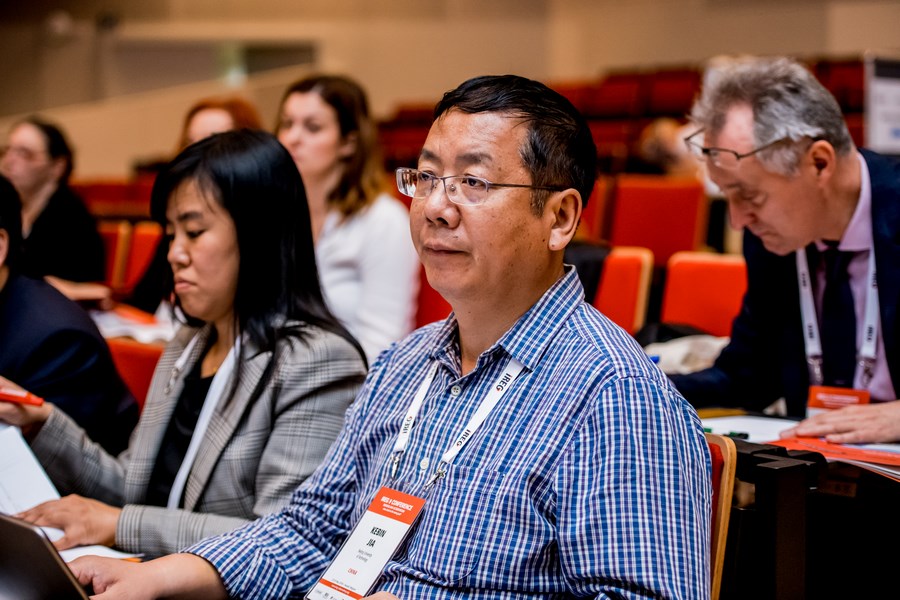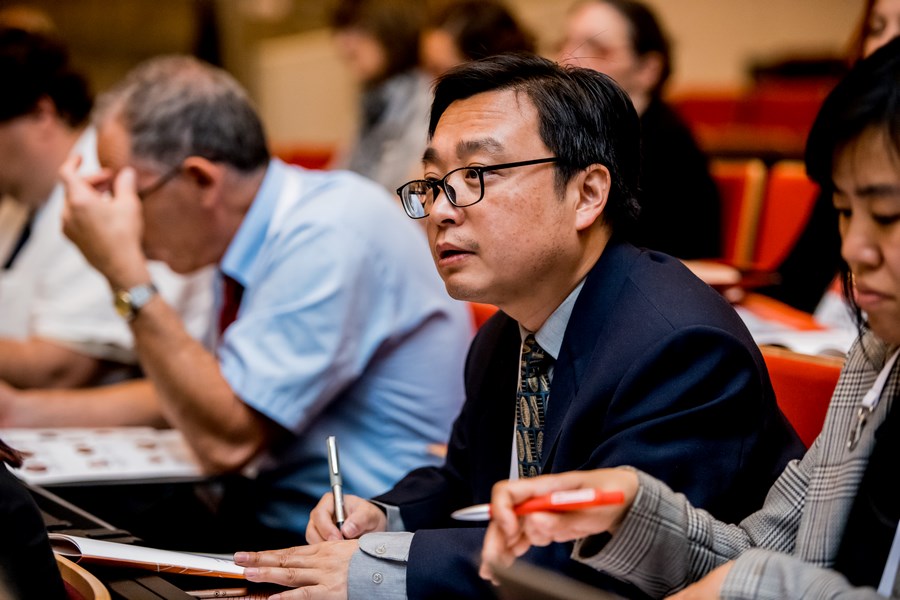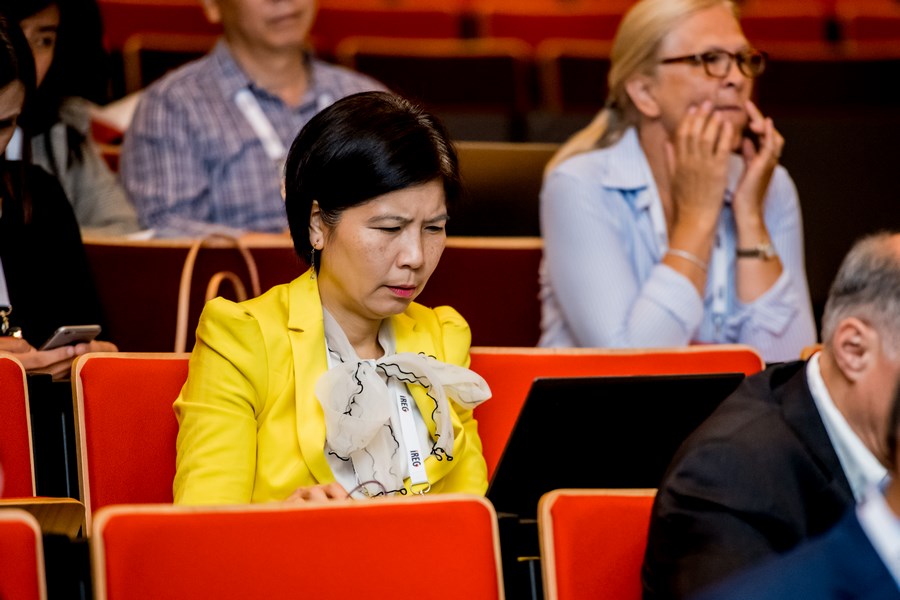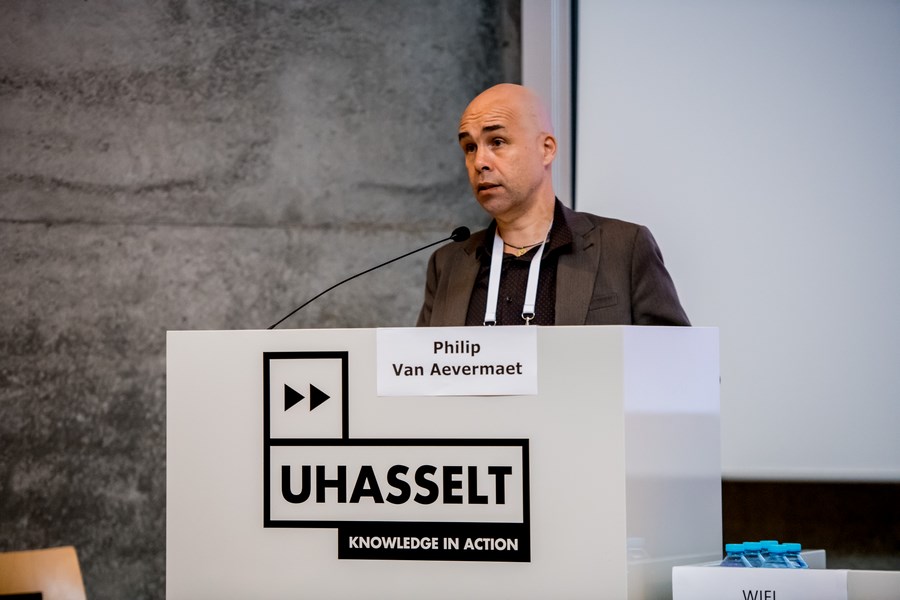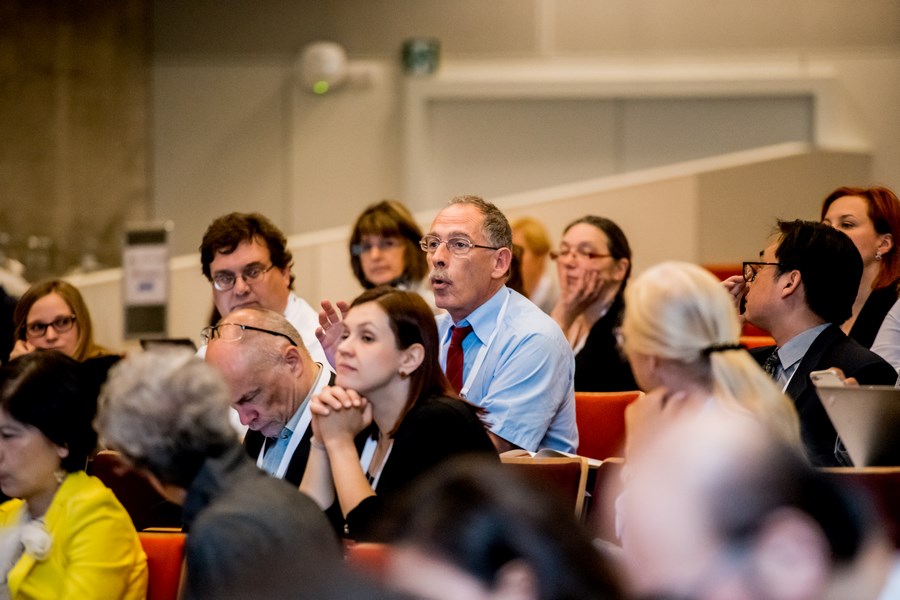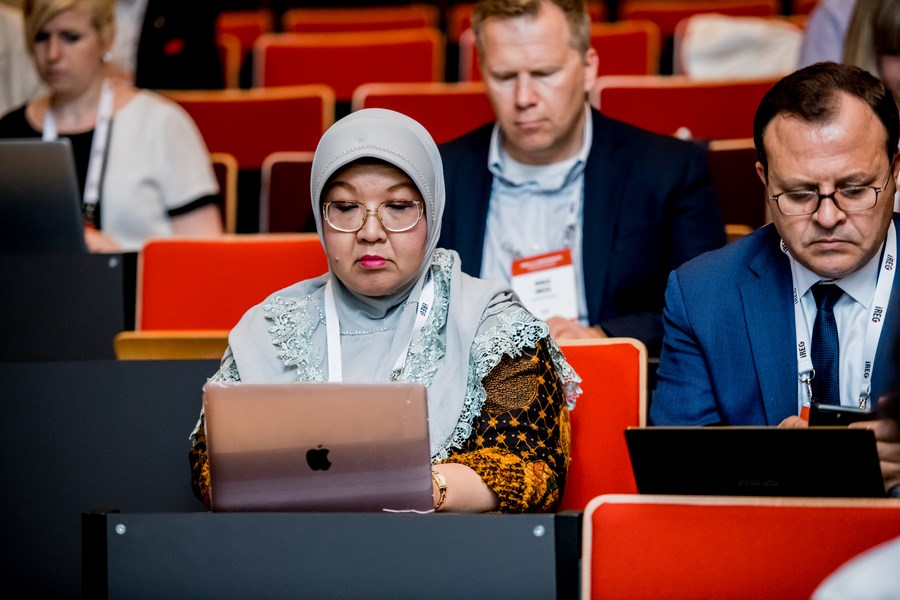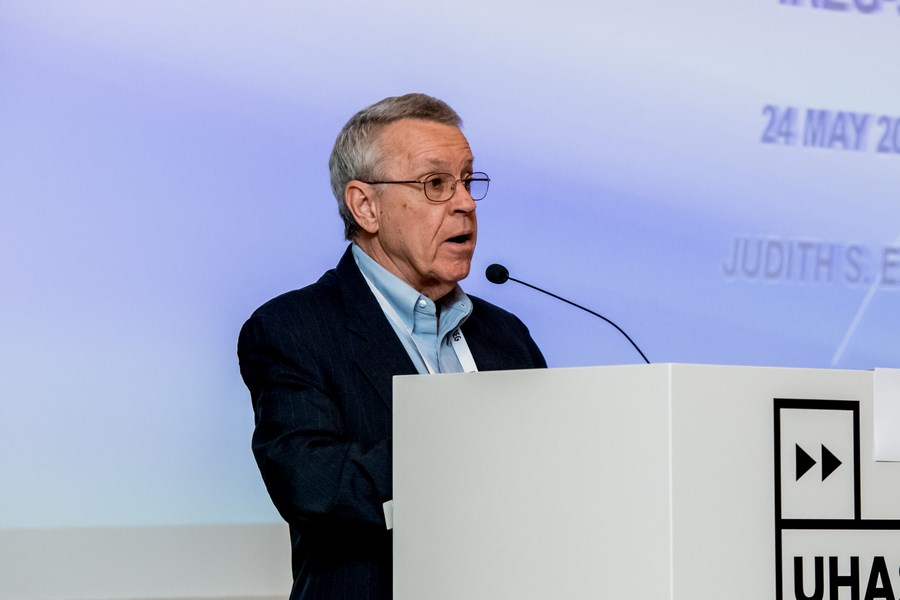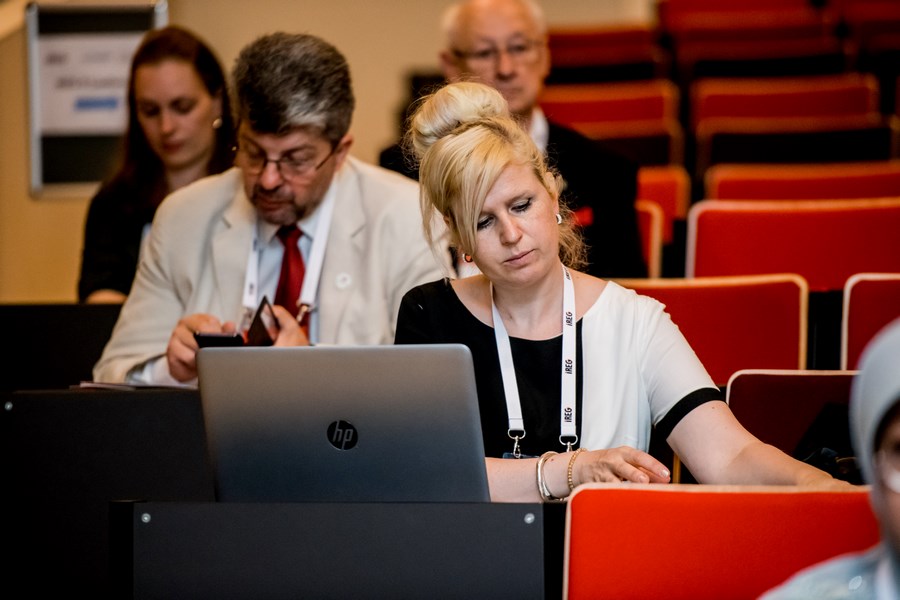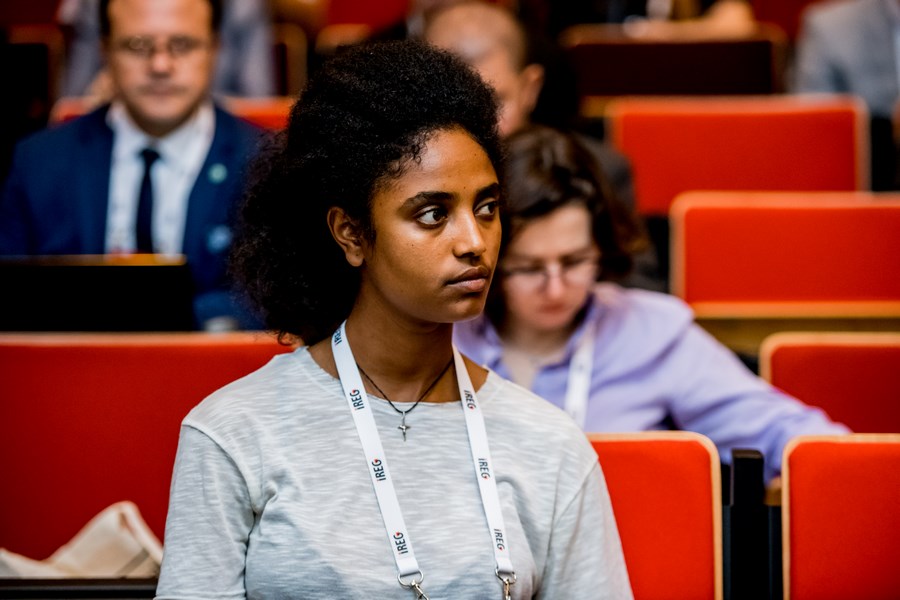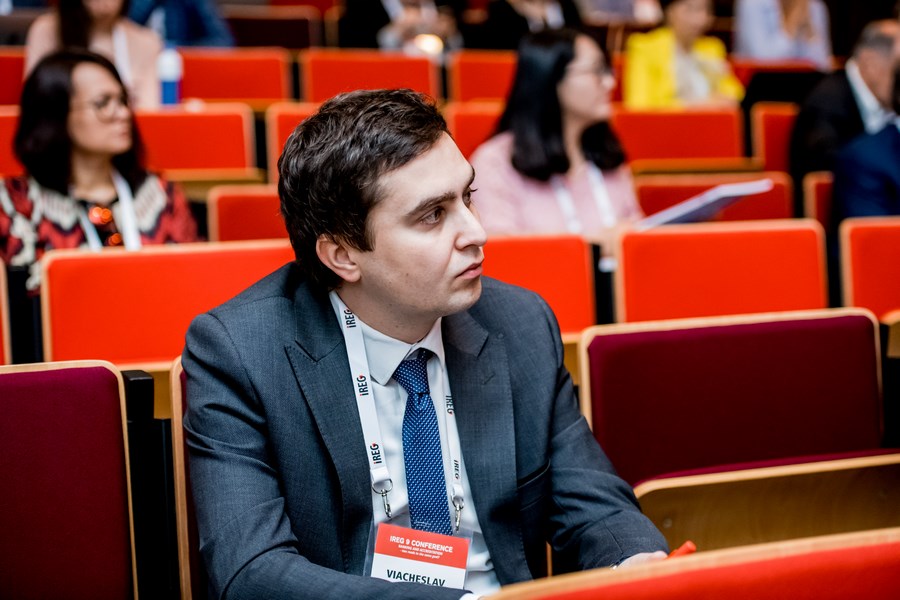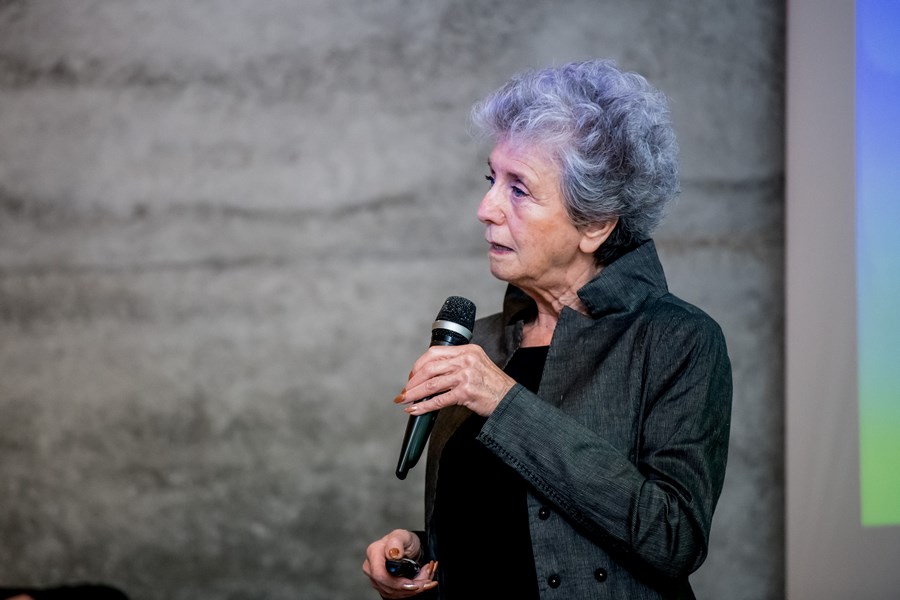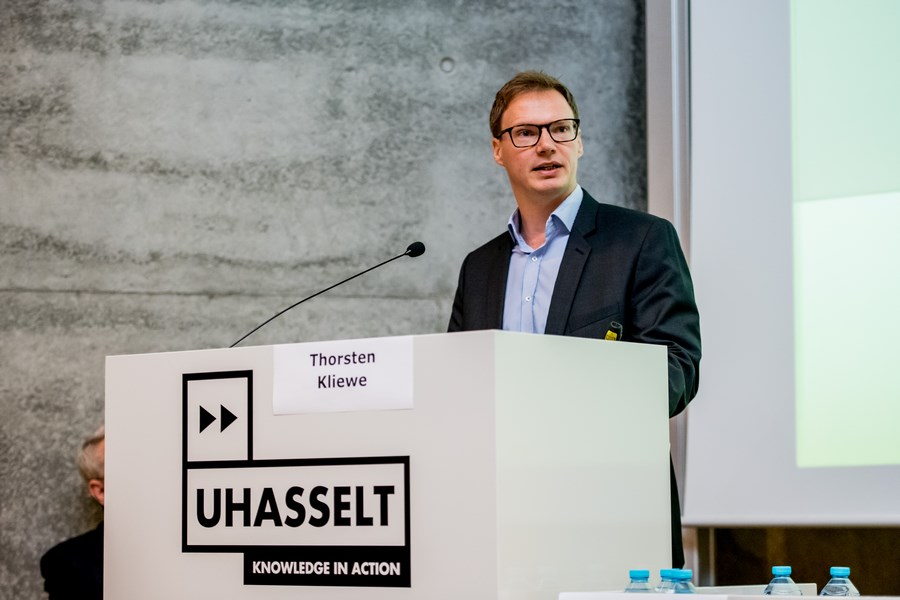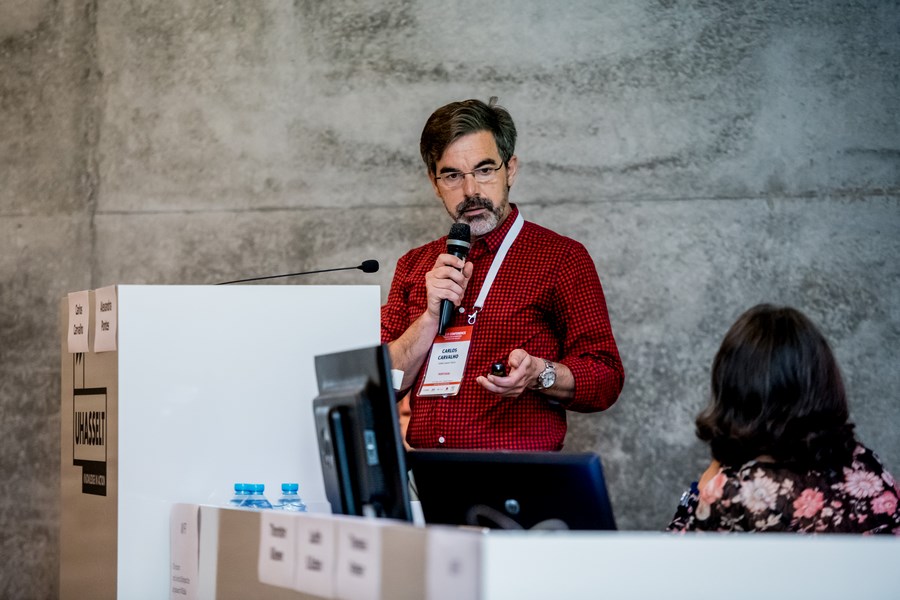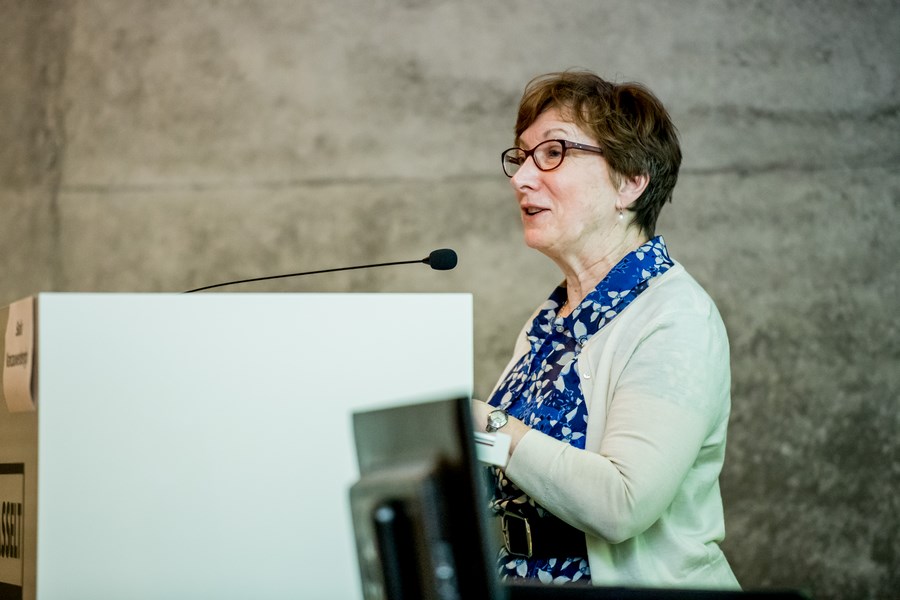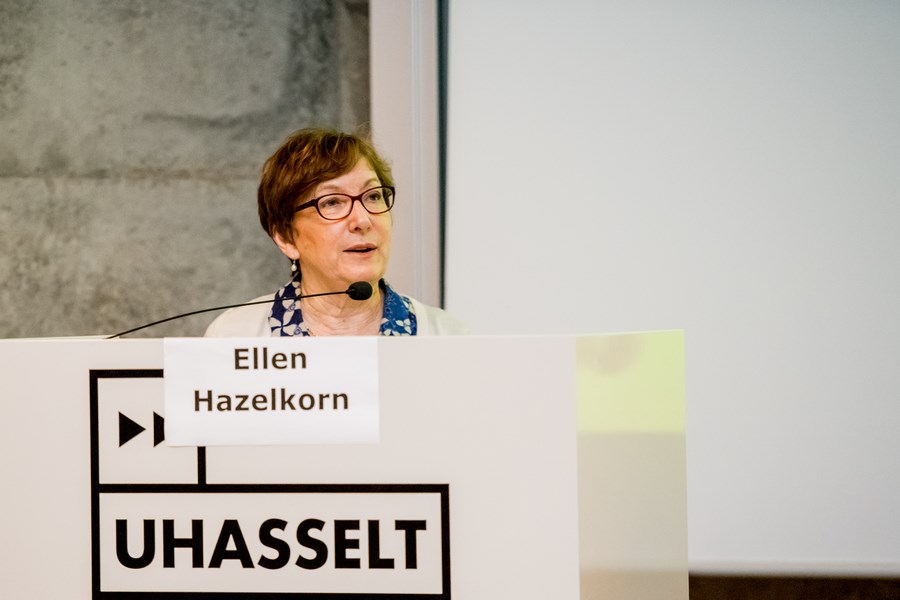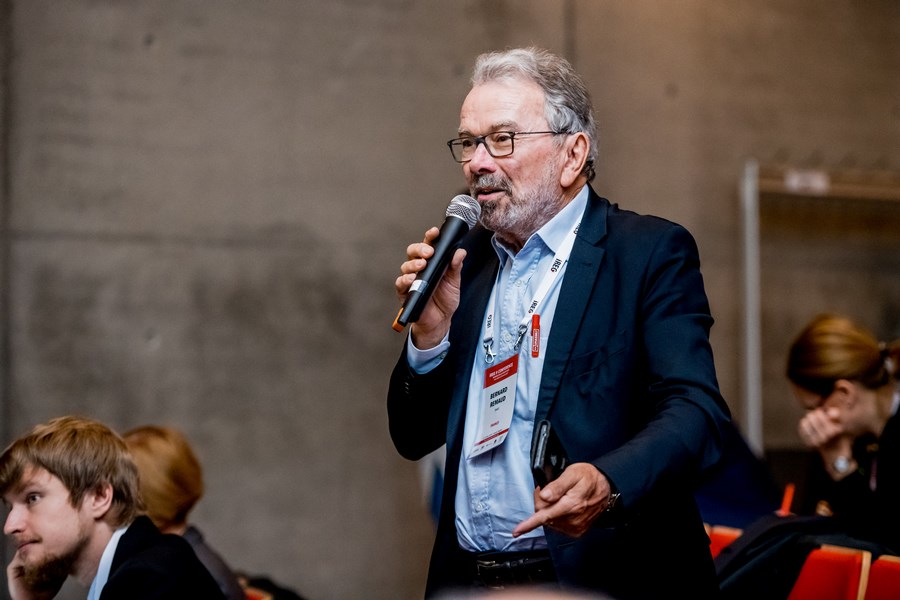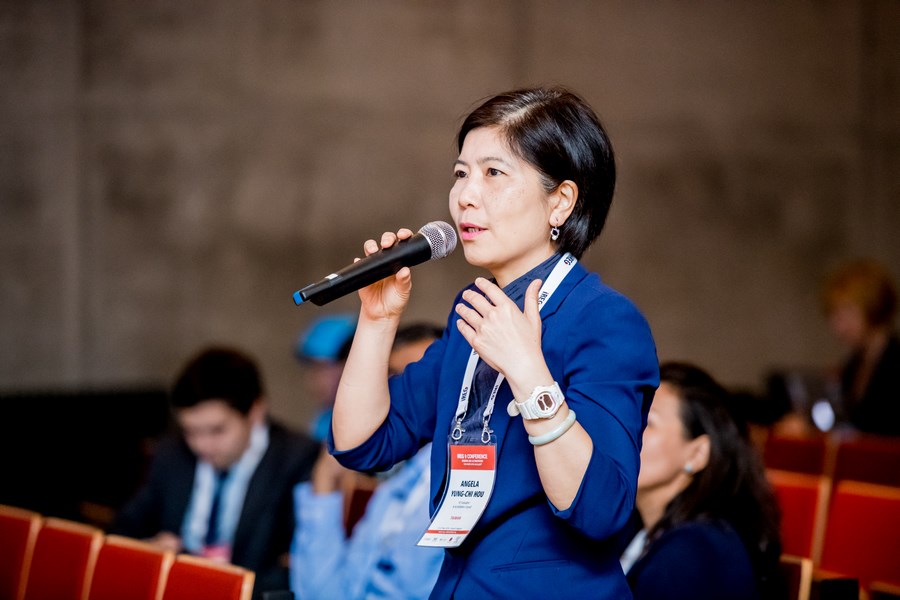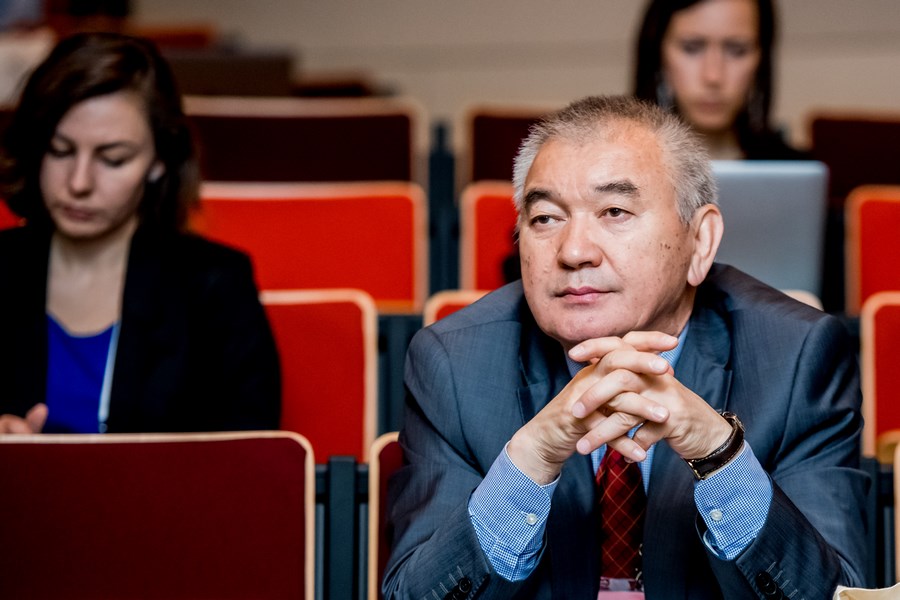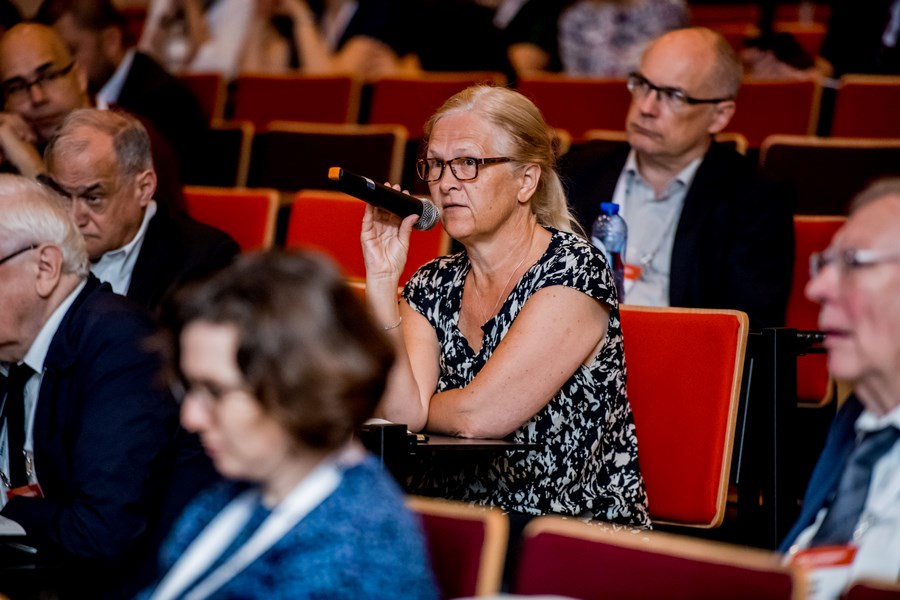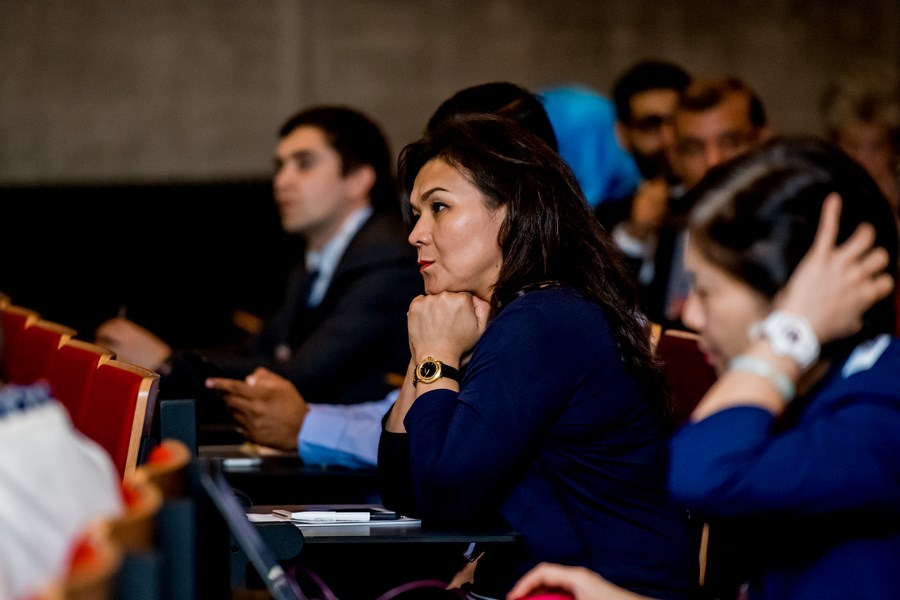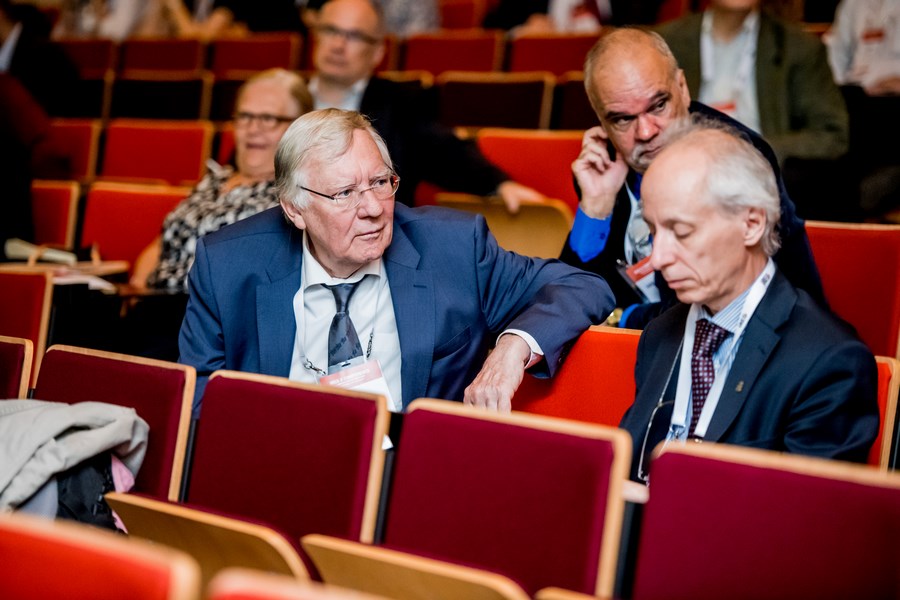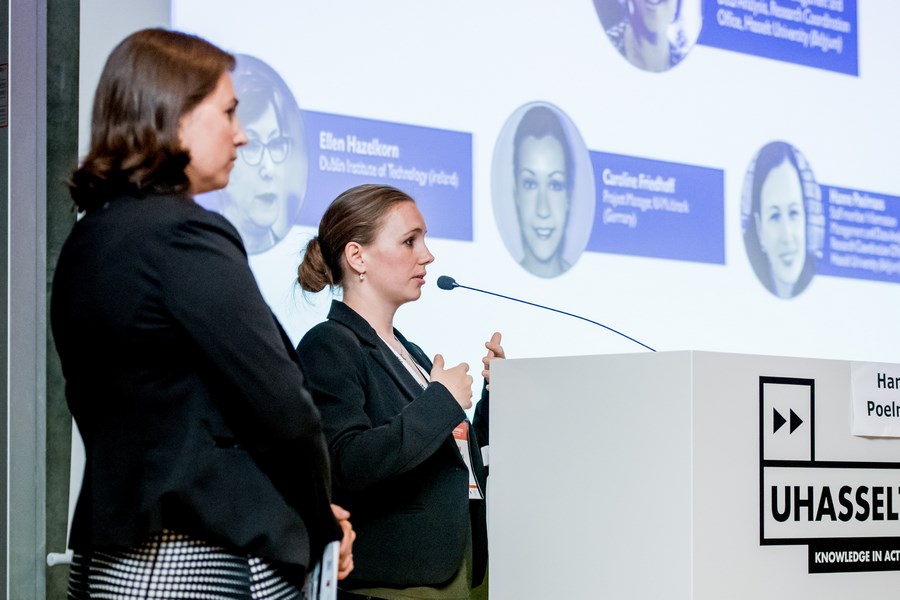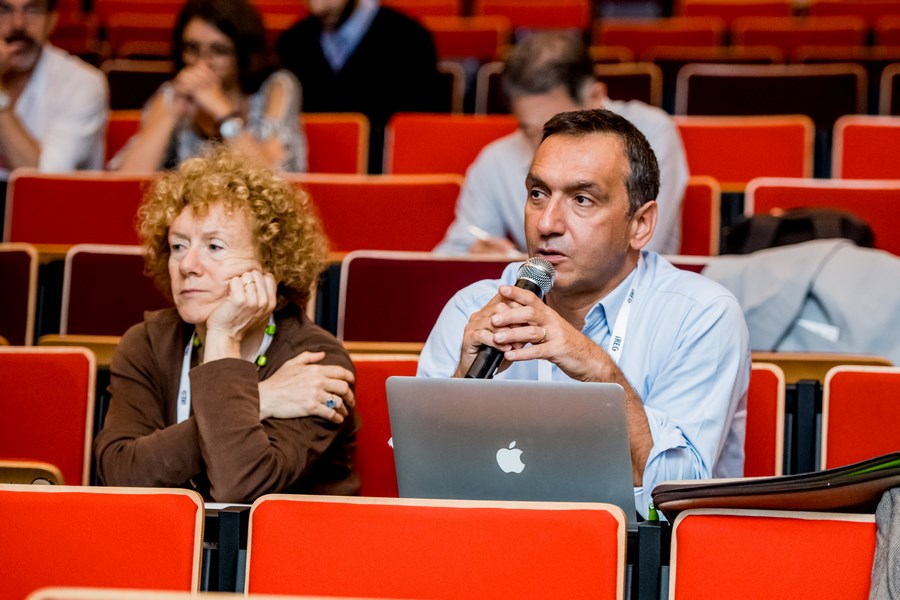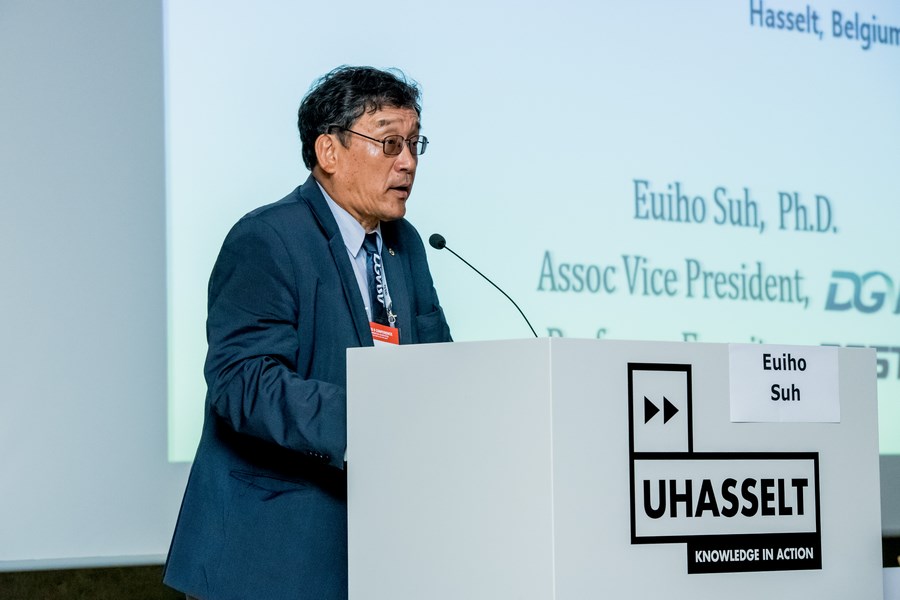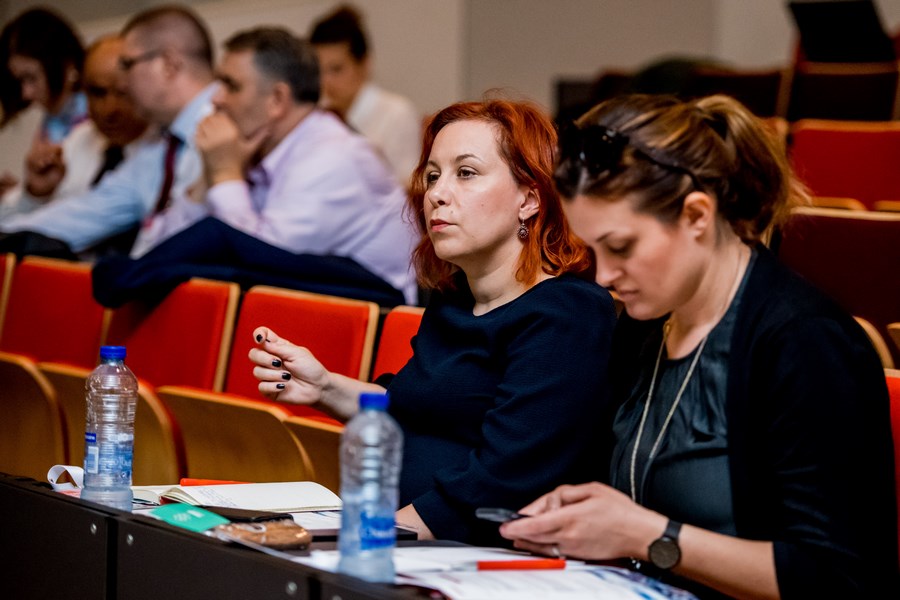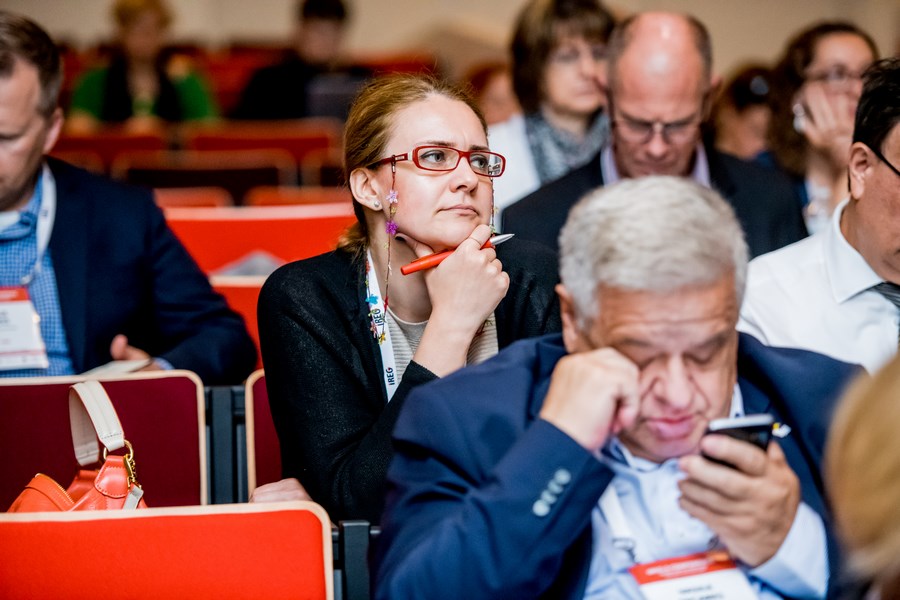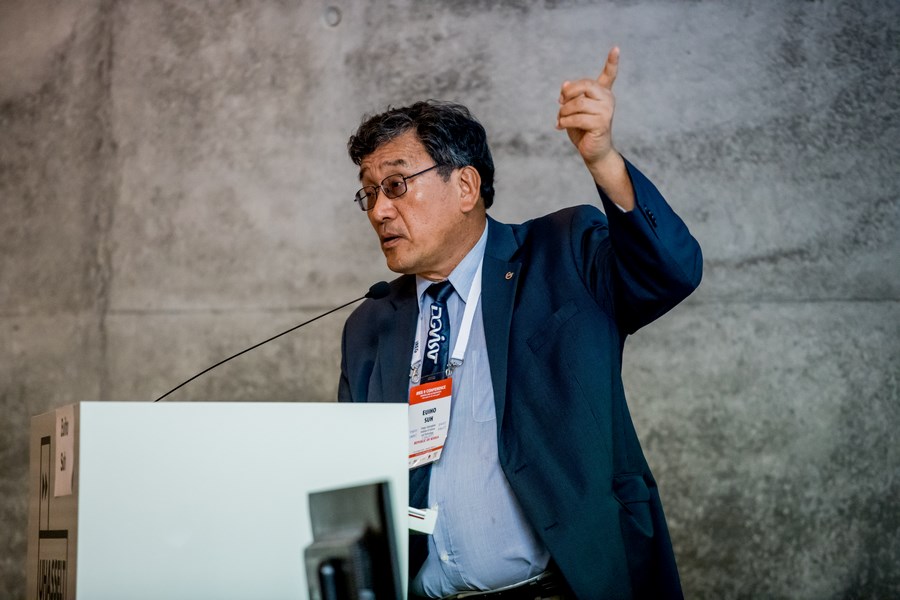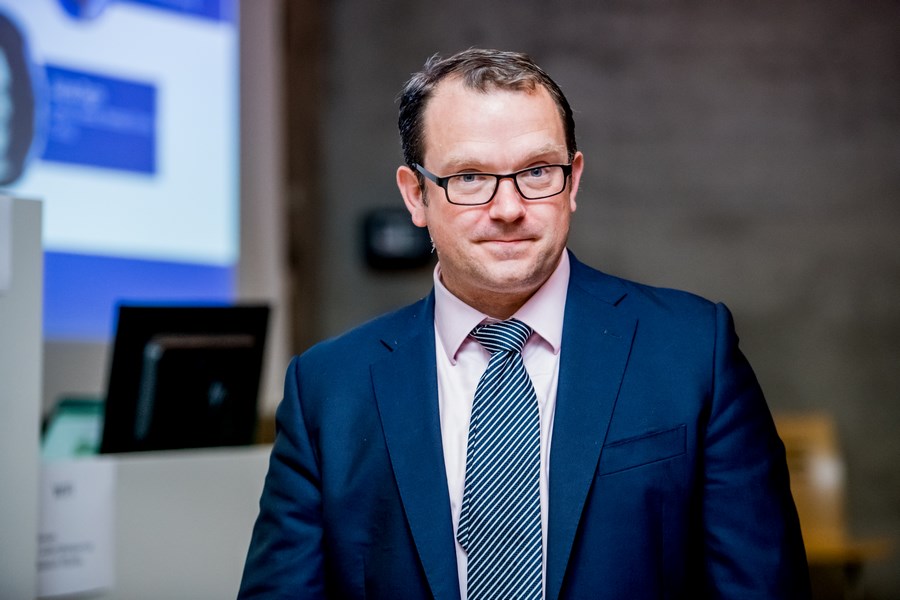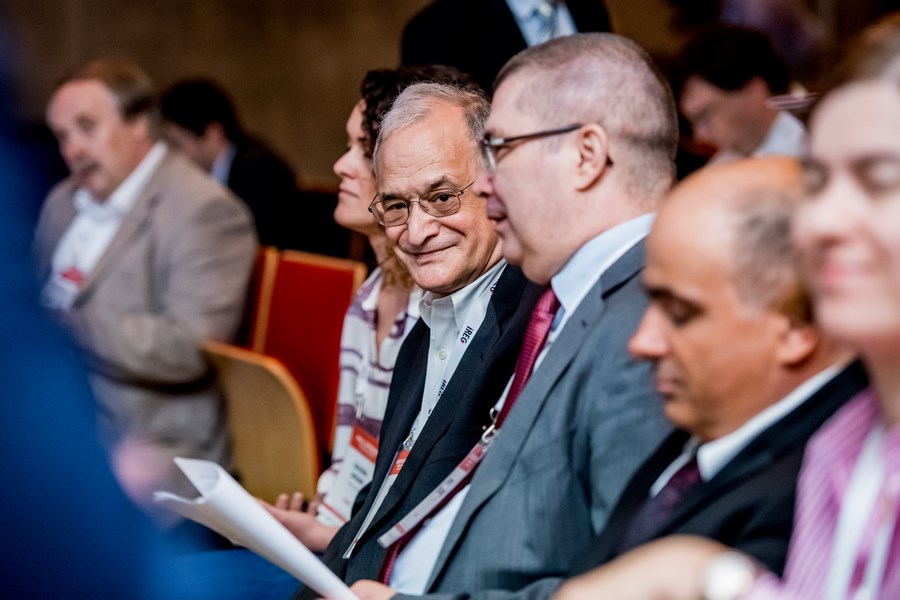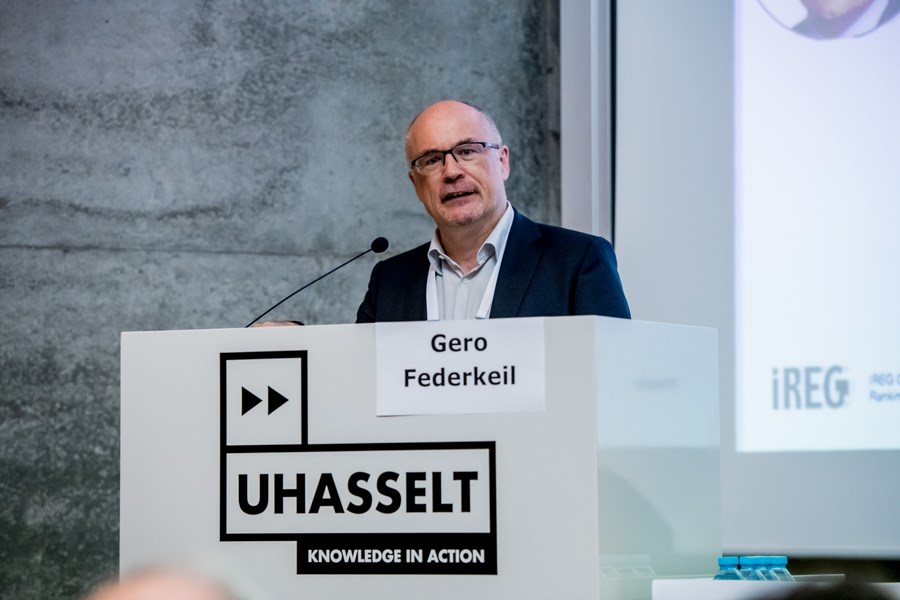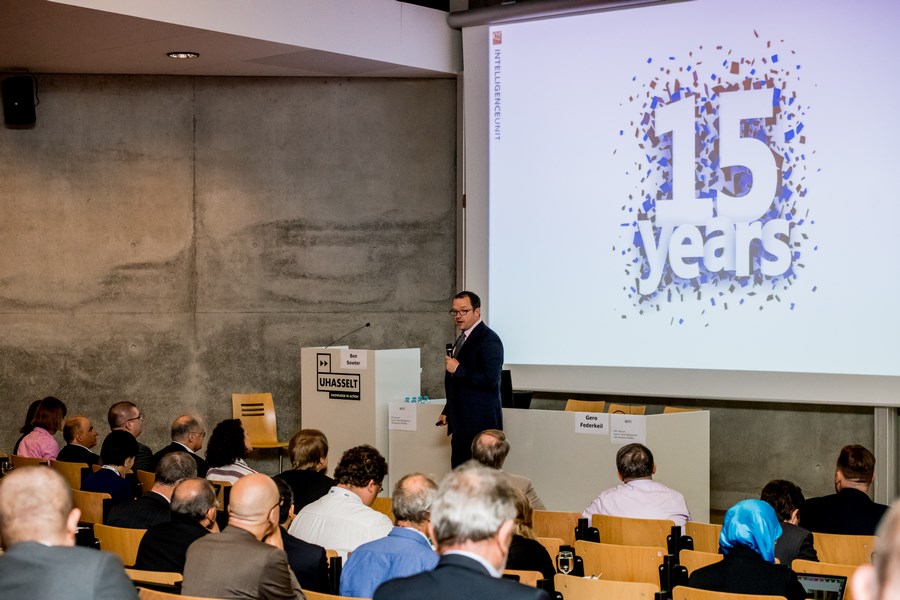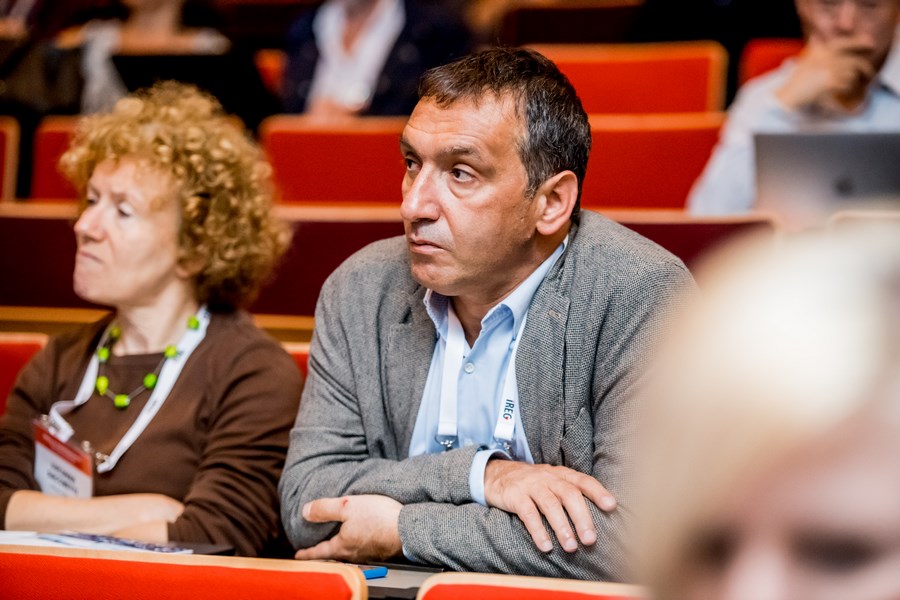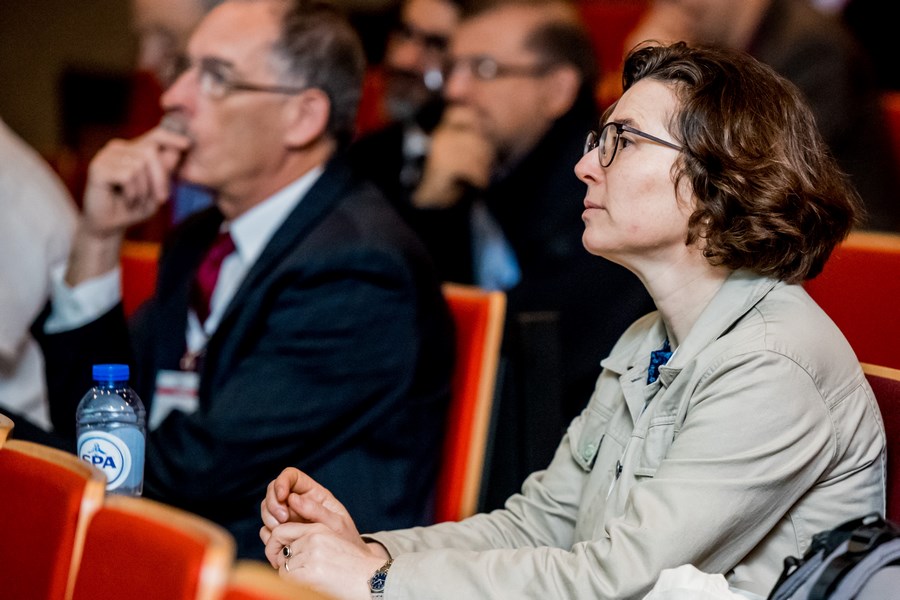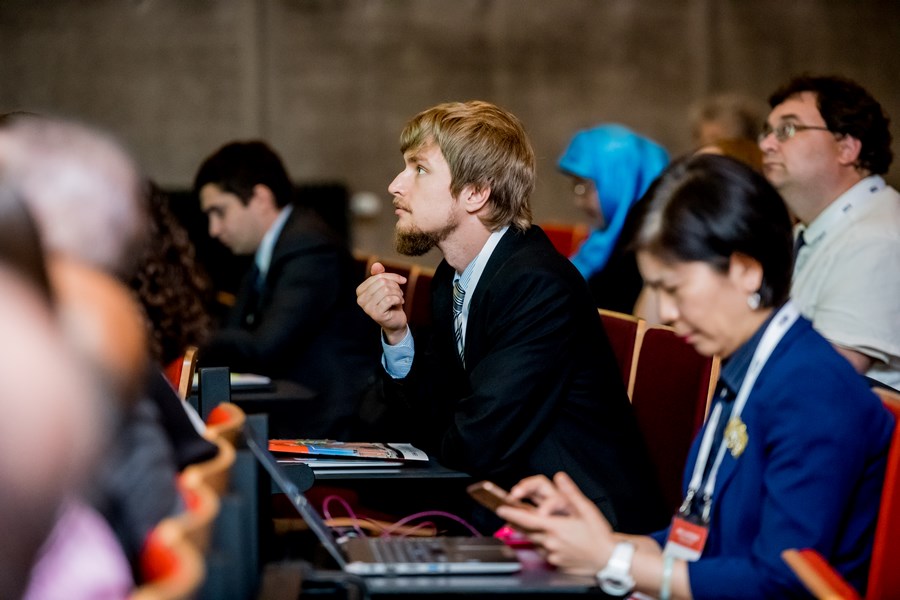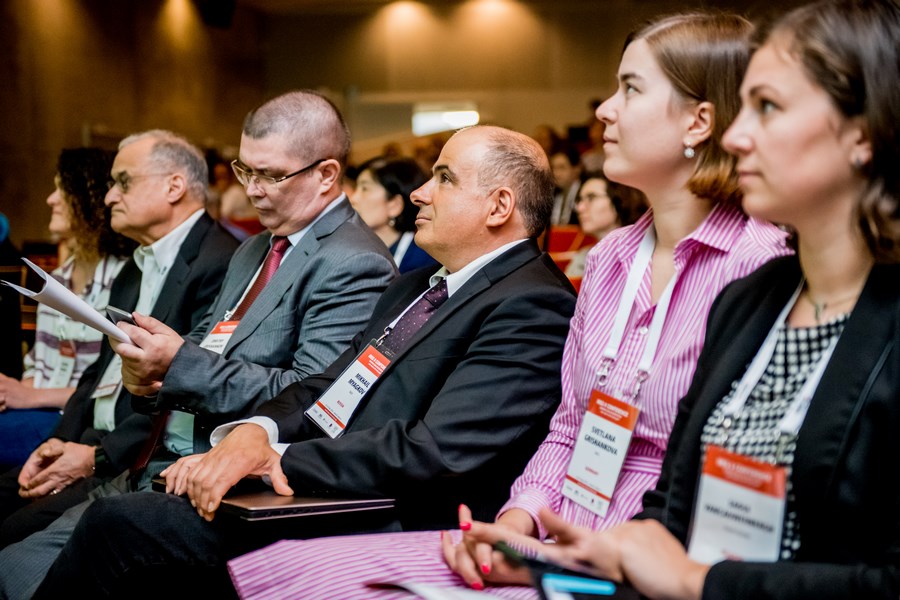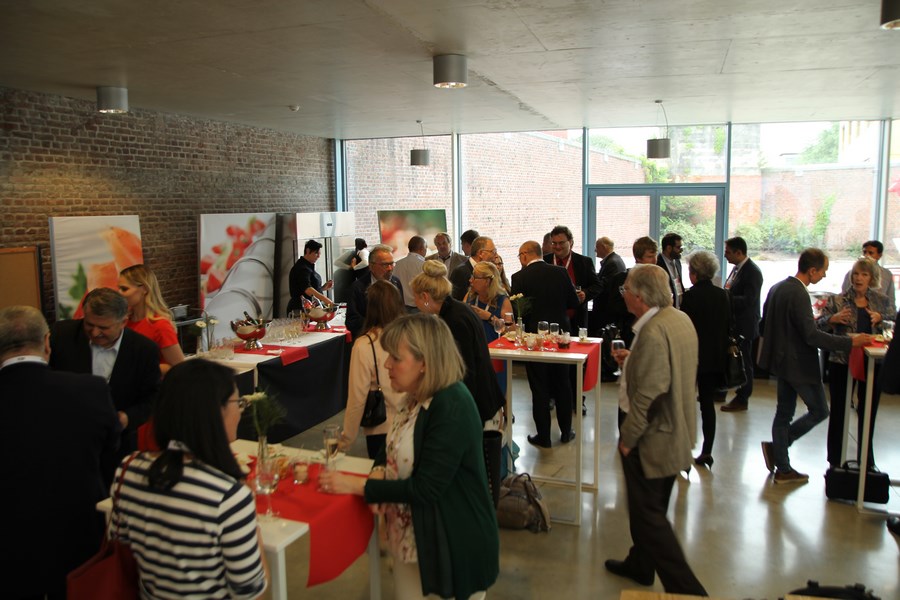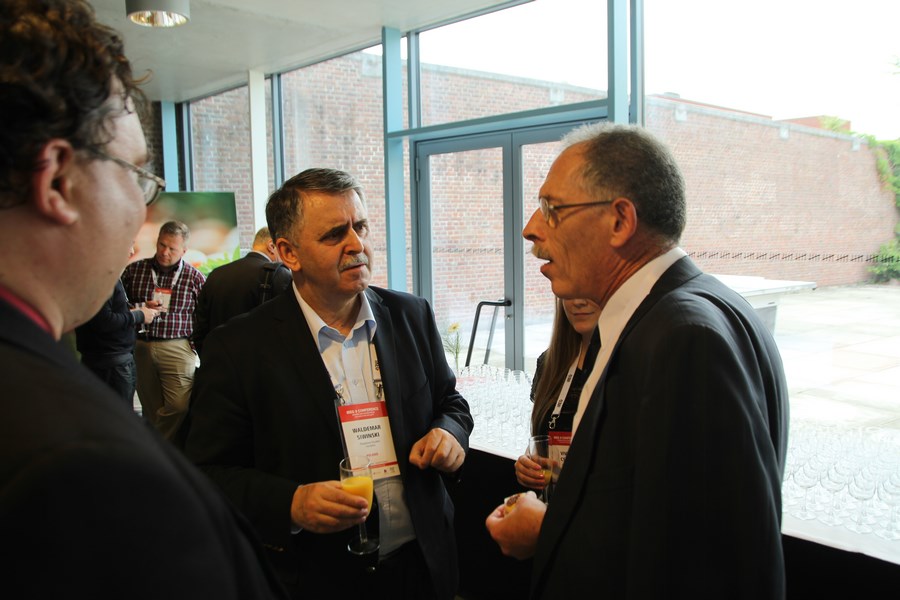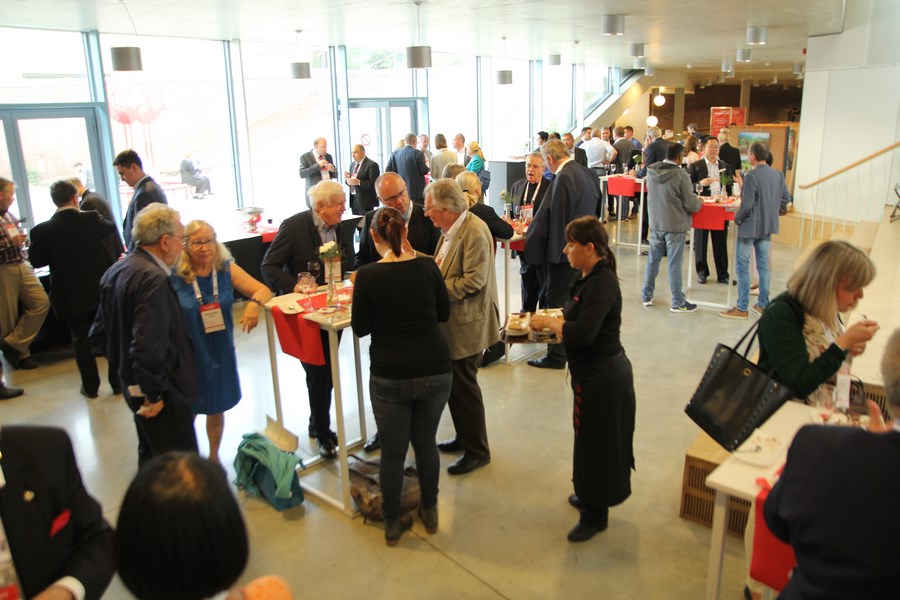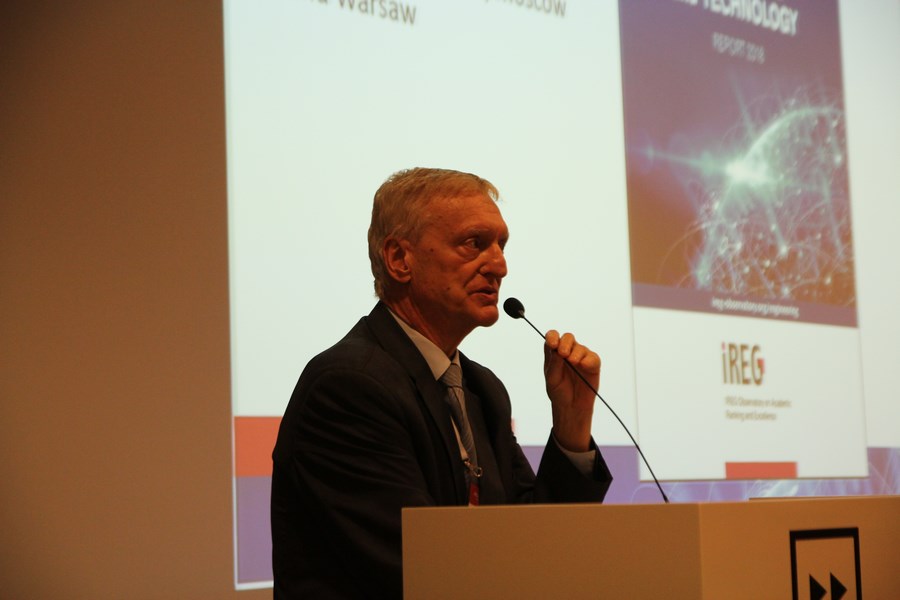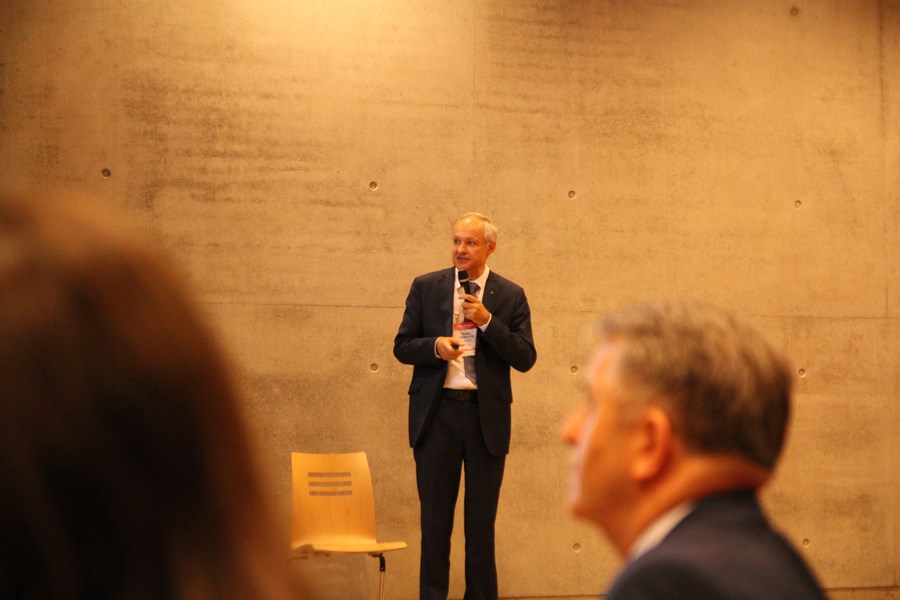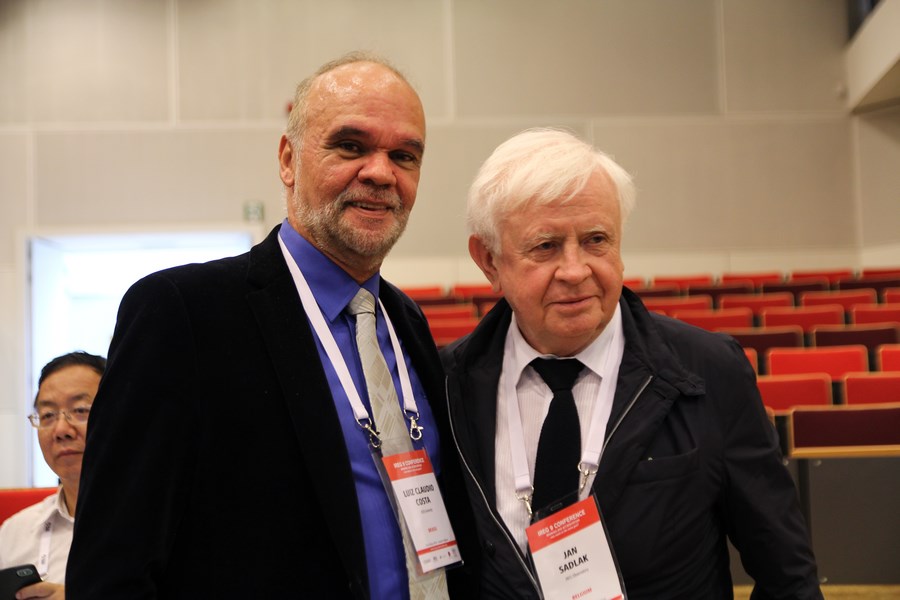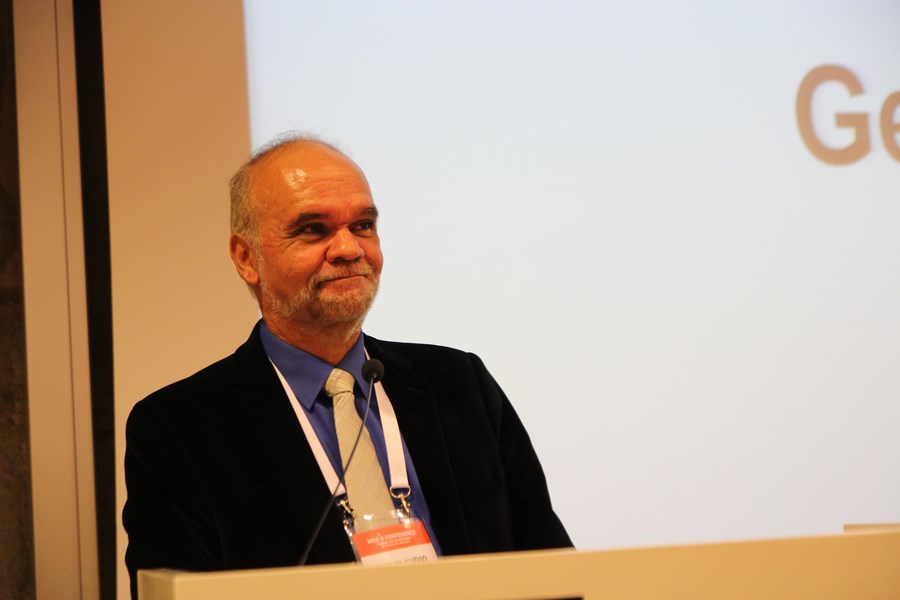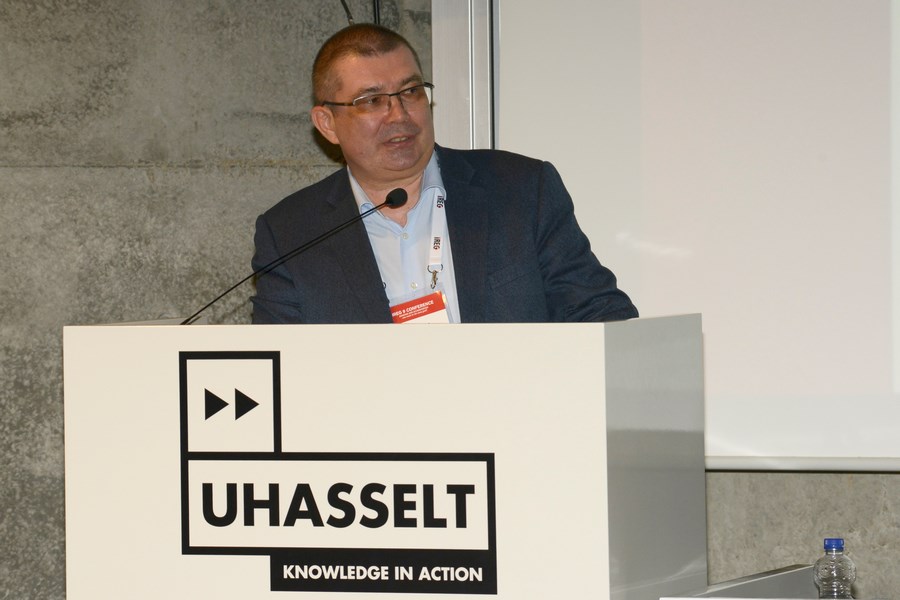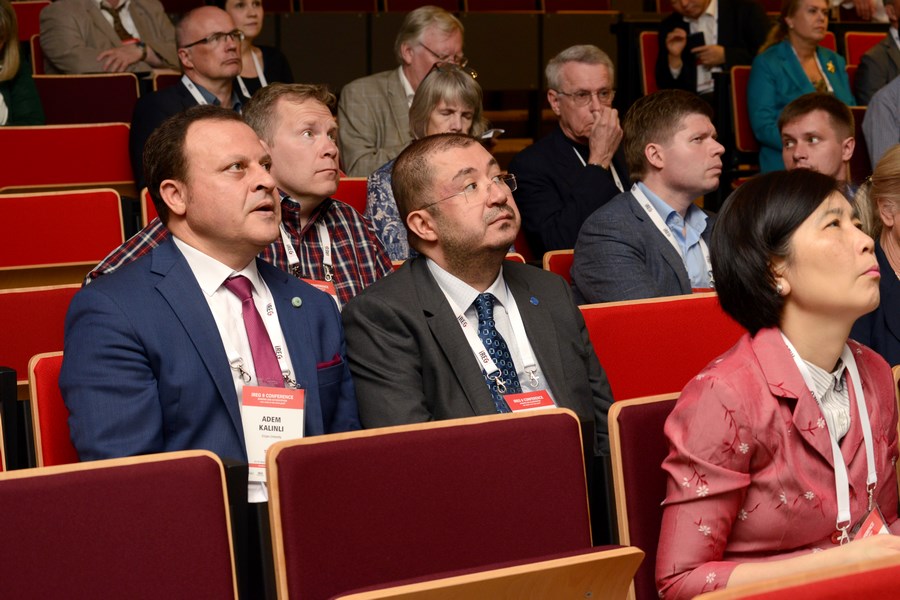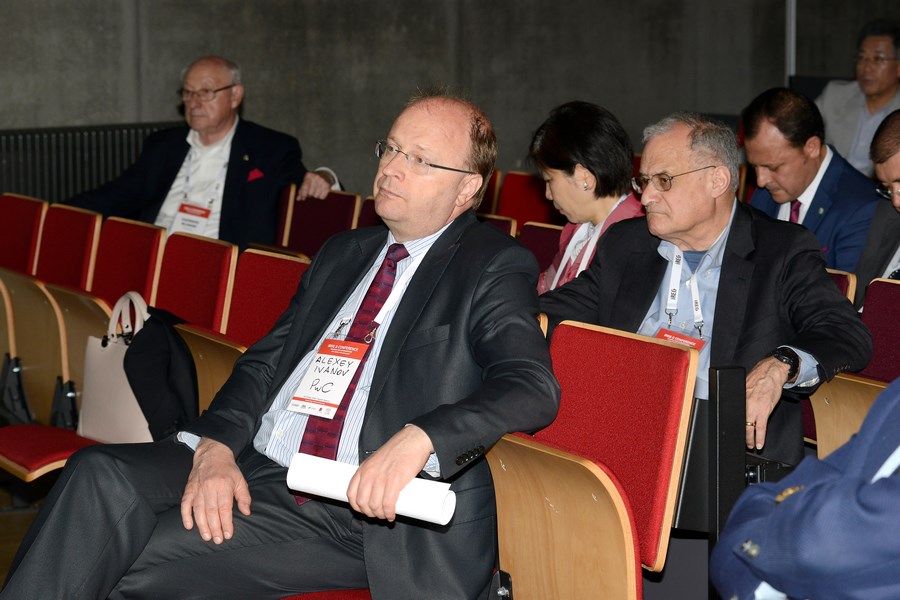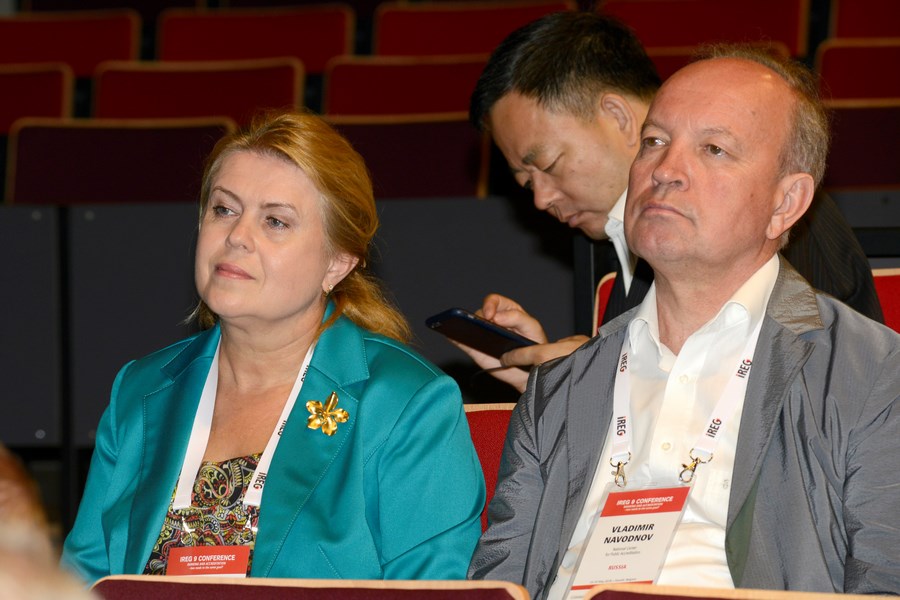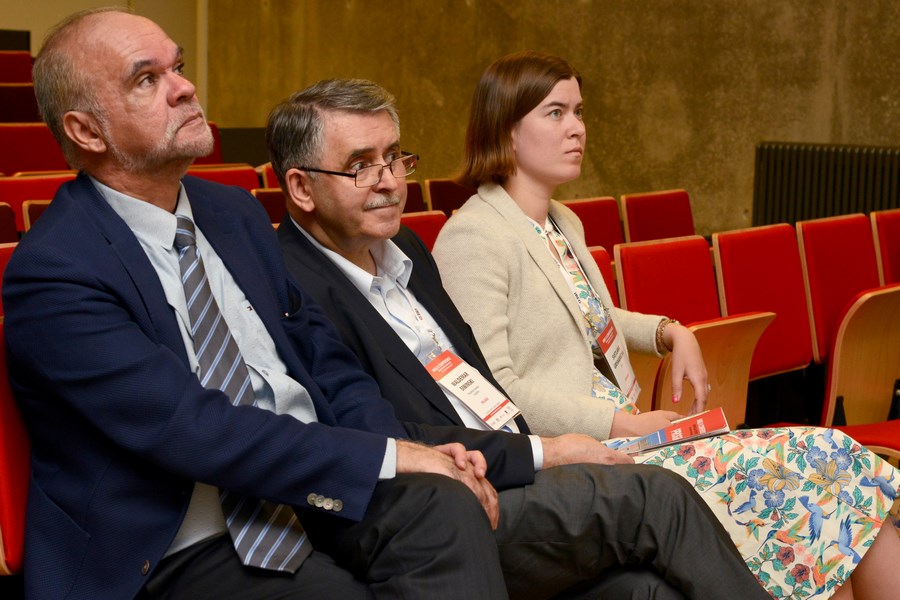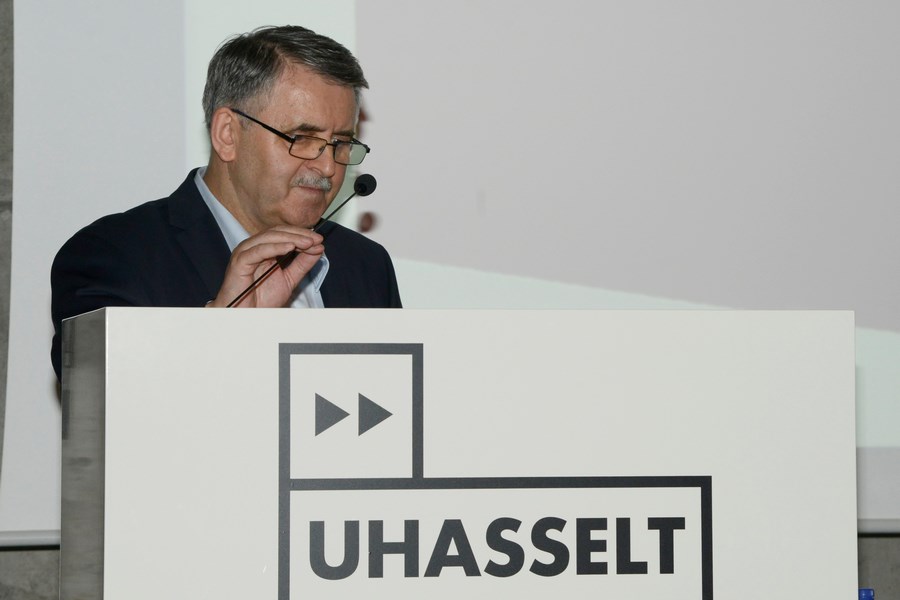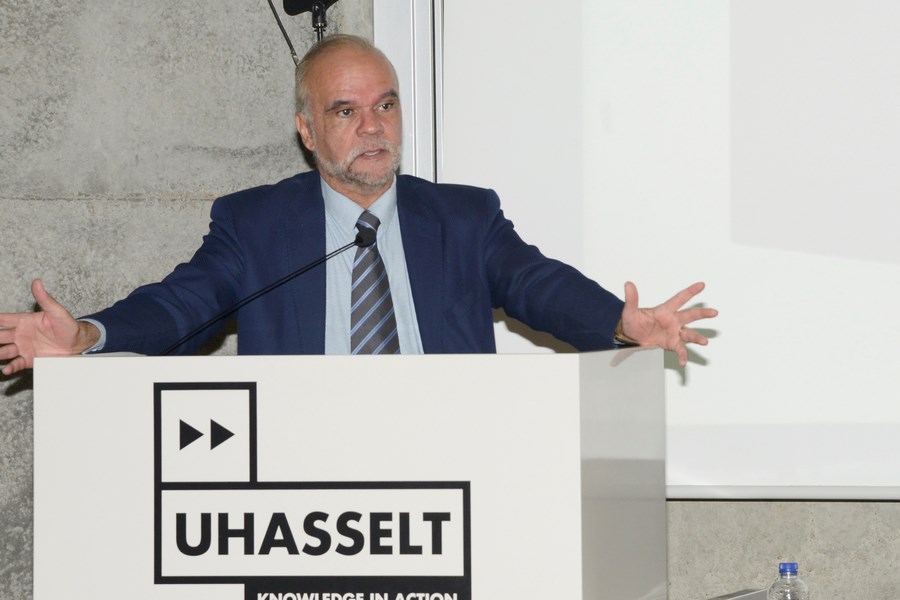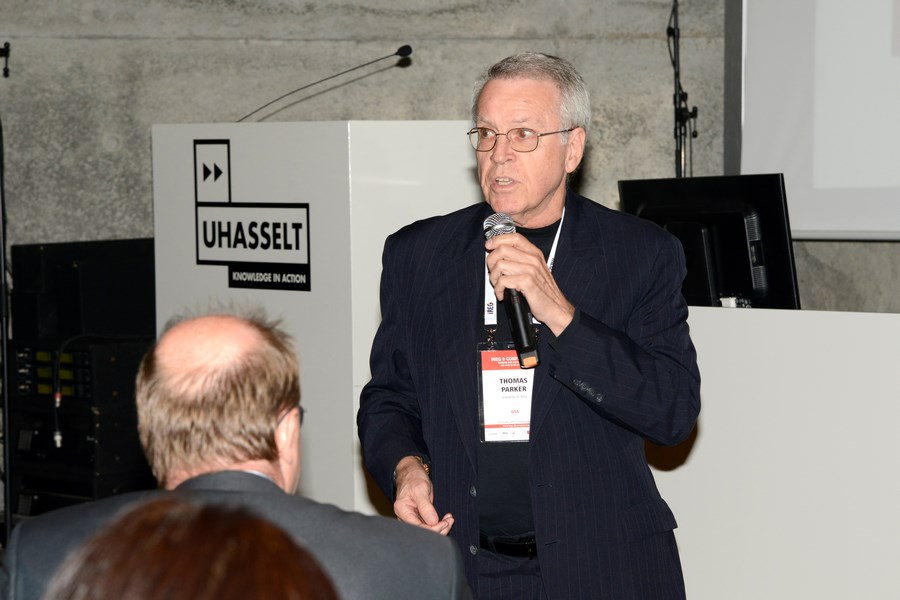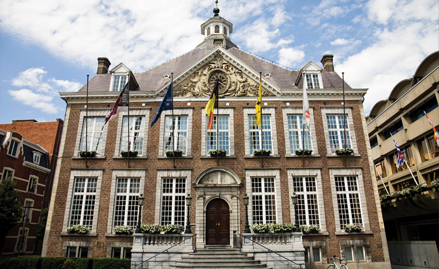
IREG-9
Conference
Ranking and Accreditation
Two roads to the same goal?
Belgium - Hasselt 23-25 Maz 2018
Organizers:
Sponsors:
Background and themes
Accreditation and ranking have been, until recently, perceived as two separate areas in the sphere of evaluation of higher education, each serving a different purpose. This perception, however, is changing. Though the two still are very different and function separately, there are signs that the borders between accreditation and ranking are getting blurred.
The importance of the idea of quality assurance and accreditation gained significance and have been evolving as a consequence of the phenomenon of massification of higher education. In a growing number of countries up to 50 per cent of high school graduates continue education on the higher level, consequently, it has become necessary to assure that education on the tertiary level meets a certain quality level. This can be achieved by introduction of a quality assurance system through the process of accreditation, that in a number of countries, especially in Europe, is mandatory for higher education institutions. It must be remembered, however, that accreditation, in fact, certifies and confirms that a given higher education institution meets the minimum required standards. In other words, accreditation defines a “bottom line” of the quality level in higher education.
The purpose of academic rankings has been, from the very beginning, to identify the best institution. To achieve this, it has been necessary for the rankers to identify what is it that represents “excellence” in higher education. Originally university rankings were to serve primarily for informational purposes, but over time, rankings have become an effective tool to stimulate better quality in higher education. Rankings provide a fuller picture of a university than accreditation since they take into account more factors and indicators and analyse them deeper. Besides, rankings are updated more often than accreditations, in most cases on an annual basis.
The accreditation is efficient in setting a minimum quality level but alone it does not solve the issue of quality in higher education. Accreditation is not enough to assure competitiveness.
On the other hand, if the accreditation process is more “inert” than ranking, it has a much stronger impact on the faculty management and quality assurance (definition of program outcomes, self- assessment report). The accreditation report is not only a yes/no answer, but it comprises a diagnosis of the institution and programs and a set of recommendations for improvement.
There are other differences between the two; for accreditation institutions have to pay, rankings, as painful for some institutions they may be, are basically free. Again, in many countries accreditation is compulsory, without approval of the state accreditation agency an institution cannot open its doors to students (right to practice). A minimal standard is unconditional while a single institution may have a different ranking across different ranking systems. On the other hand there areas common both for accreditation and rankings.
Accreditation is focused primarily on the quality of teaching, while the rankings are focused on the quality of research. Accreditation measures the quality of the inputs into education while Rankings measure the outcomes of an educational institution. Thanks to the ever increasing measurable data available, we can witness more transparency both in accreditation and rankings. As a consequence, we get a better, more complete and fuller picture of a higher education institution. Many national rankings already take into account accreditations in their methodology, while accreditation organizations carefully study ranking methodologies in order to improve their own procedures.
Lastly, the pressures of new technology and the movement for open data put pressure on both Accreditation and Ranking standards. By working together it is possible to use the best practices of both specialties to maintain strong and consistent educational standards in growing and quickly evolving landscape of higher education.
The aim of the IREG-9 Conference “Accreditation and rankings – Two roads to the same goal?” will be to analyze the relations between accreditation and rankings in the context of challenges facing higher education and its quality. These relations will be discussed both on the regional level (continent) and on the discipline level (such as engineering or medicine).
The IREG-9 Conference in Hasselt will be a pioneering event where the World of Accreditation will meet the World of Ranking. This, the organizers believe, will contribute to the World of Quality in higher education.
PROGRAM
Wednesday, 23 May
23-25 May 2018, Hasselt, Belgium
Martelarenlaan 42
Program outline
May 8, 2019 (Wednesday)
Venue: Alma Mater Studiorum Università di Bologna, Rectorate, Via Zamboni 33 – 40126 Bologna
Whole day Arrival of participants
16:00 – 17:30
Executive Committee of IREG Observatory (close meeting)
Hasselt University Main Building
17:30 – 18:30
Accompanying event
Launching of the Three University Missions Ranking
[location: Aula Louis Verhaegen Hasselt University]
18:30 – 21:30
Reception (and registration)
[location: Hasselt University Restaurant]
Thursday, 24 May
- 8.30 – 9.00
Registration
[location: Foyer, Hasselt University]- 9.00 – 9.45
Opening Session
[location: Aula Louis Verhaegen]Welcome:
- Jan Sadlak, President, IREG Observatory on Academic Ranking and Excellence
- Luc de Schepper, Rector, Hasselt University
Special guest:
- Philip Van Aevermaet, Head of the Research Division at the Department of Economy, Sciences and Innovation of the Flemish Government (Belgium)
- 9.45 – 11.00
First Session: The role of rankings and accreditation in improving the quality of higher education – American and European experience
Chair: Thomas Parker, Senior Associate, Institute for Higher Education Policy (USA)
Speakers:
- Judith S. Eaton, President, Council for Higher Education Accreditation CHEA (USA)
- Thorsten Kliewe, Chair, Accreditation Council for Entrepreneurial and Engaged Universities (The Netherlands)
- Carlos Carvalho and Alexandra Pontes, Experts in Quality, Técnico Lisboa Rankings Observatory (Portugal)
Discussion
- 11.00 – 11.30
Coffee Break
- 11.30 – 12.00
Special speaker:
- Stefaan Hermans, Director of the Policy strategy and Evaluation in DG Education, Youth, Sport and Culture, European Commission
- 12.00 – 13.00
Second Session: Role of ranking and accreditation in Asia, Africa and Latin America
Chair: Luiz Claudio Costa, Vice Rector, IESB University in Brasilia, former Minister of Education (Brazil)
Speakers:
- Angela Yung-chi Hou, Executive Director of Higher Education Evaluation & Accreditation Council, Vice President of APQN (Taiwan)
- Palak Sheth, Director, Pandit Deendayal Petrolum University (India)
- Illahi Bakhsh Marghazani, Director, Quality Enhancement Cell (QEC) Lasbela University of Agriculture, Water and Marine Sciences, Uthal, Balochistan (Pakistan)
Discussion
- 13.00 – 13.45
Lunch
- 13.45 – 14.00
Poster session
- 14.00 – 14.30
Special presentation
- Stephane Berghmans, VP Academic & Research Relations, Europe, Elsevier Will Open Science influence accreditation and rankings?
- 14.30 – 15.30
Third Session: Accreditations and rankings in the strategic management of the university (perspective of IREG Observatory members)
Chair: Witold Bielecki, Rector, Kozminski University (Poland)
Speakers:
- Hassan Rashid Al-Derham, President, Qatar University (Qatar)
- Mikhail Strikhanov, Rector National Research Nuclear University MEPhI (Russia)
- Mirko Degli Esposti, Deputy Rector, Alma Mater Studiorum Università di Bologna (Italy)
Discussion
- 15.30 – 16.00
Coffee Break
- 16.00 – 17.30
Fourth Session: Building bridges between ranking and accreditation in engineering education
Chair: Waldemar Siwinski, President, Perspektywy Education Foundation, Vice President, IREG Observatory on Academic Ranking and Excellence (Poland)
Speakers:
- Bernard Remaud, President, European Network for Engineering Accreditation “ENAEE” (France)
- Dirk Bochar, Secretary General, European Federation of National Engineering Associations “FEANI” (Belgium)
- Michal Kleiber, Vice-President of the European Academy of Sciences and Arts (EASA) in Salzburg
- Anne-Marie Jolly, Professor Emeritus in University of Orleans, Member of French Accreditation Commission for Engineering Commission des Titres d’Ingénieur (France)
- Marek Pawelczyk, Vice Rector for Science and Development, Silesian University of Technology (Poland)
Discussion
- 19.00 – 21.30
Conference Gala Dinner
[Location: Radisson Blu Hotel]- 9.00 – 10.30
Fifth Session: Use of rankings as instruments for benchmarking
Chair: Sadia Vancauwenbergh, Project Leader ECOOM-UHasselt, Hasselt University, (Belgium)
Keynote speaker:
- Ellen Hazelkorn Dublin Institute of Technology (Ireland)
Speakers:
- Caroline Friedhoff, Project Manager, U-Multirank (Germany)
- Hanne Poelmans, Research Coordination Office, Hasselt University (Belgium)
- Euiho Suh, Associate Vice President, DGIST; President, URFK (Republic of Korea)
Discussion
- 10.30 – 11.00
Coffee Break
- 11.00-12.45
Sixth Session: Recent Developments in Academic Rankings
Chair: Gero Federkeil, Head of Intenational Rankings, U-Multirank Consortium, Vice President, IREG Observatory on Academic Ranking and Excellence (Germany)
Speakers:
- Ben Sowter, Head of Division, QS Inteligence Unit (United Kingdom)
- Dmitry Grishankov, President, RAEX Rating Agency, Mikhail Myagkov (Russia)
- Robert Morse, Director of Data Research, U.S. News & World Report (USA)
- Andras Telcs, Scientific Advisor, Hungarian Academy of Sciences (Hungary)
- Rui Zhang, Director, Evaluation Center for World First Class Universities and Disciplines (China)
- Guleda Dogan, Hacettepe University (Turkey)
Discussion
- 12.45-13.00
Closing Session
- Jean-Michel Rigo, Vice-Rector Research, Hasselt University
- Jan Sadlak, President, IREG Observatory
Invitation to IREG-Conference 2019
- 13.00 – 13.45
Farewell lunch
- 13.45 – 16.30
General Assembly of IREG Observatory (member organizations only)
[location: Aula Louis Verhaegen]
Friday, 25 May
Organizers
Program Committee
- Jan Sadlak, President, IREG Observatory on Academic Ranking and Excellence
- Luc de Schepper, Rector, Hasselt University, Belgium
- Gero Federkeil, CHE – Centre for Higher Education, Germany
- Nian Cai LIU, Shankhai Ranking Consultancy, China
- Waldemar Siwinski, Perspektywy Education Foundation, Poland
- Sholpan M. Kalanova, Agency for Quality Assurance in Education, Kazkhstan
- Antonio Rendas, former Rector, Universitade NOVA de Lisboa, Portugal
Organizing Committee
- Kazimierz Bilanow, IREG Observatory on Academic Ranking and Excellence
- Sadia Vancauwenbergh, Hasselt University
SPEAKERS
 Ellen Hazelkorn
Ellen Hazelkorn
Dublin Institute of Technology (Ireland)
Professor Hazelkorn is Policy Advisor to the Higher Education Authority (HEA) and Emeritus Professor and Director, Higher Education Policy Research Unit (HEPRU), Dublin Institute of Technology (Ireland). She is President of EAIR (European Higher Education Society), and on the Advisory Board and the Management Committee, Centre for Global Higher Education (CGHE), UCL Institute for Education, in addition to being an International Co-Investigator.
Ellen is internationally recognised for her writings and analysis of the impact and influence of rankings on higher education policy and institutional decision-making. Rankings and the Reshaping of Higher Education: The Battle for World-Class Excellence (2nd ed.) was published in 2015. In addition, she has authored Developing Research in New Institutions (OECD, 2005), co-edited Rankings and Accountability in Higher Education: Uses and Misuses (UNESCO, 2013), and co-authored, Rankings in Institutional Strategies and Processes: impact or illusion? (EUA, 2014).
 Jan Sadlak
Jan Sadlak
President of IREG Observatory on Academic Ranking and Excellence (Belgium)
Jan Sadlak was elected in October 2009 as the President of the IREG Observatory on Academic Ranking and Excellence.
He is internationally recognized and highly cited expert in higher education policy, governance and management at the system and institutional level [H-index – 12]. His research interests and publications cover such topics as processes of reform and transformation in higher education and science policy, organization of doctoral studies and qualifications, private higher education, world-class university, quality assurance and academic ranking as well as ethical dimension of higher education and academic values. He is [or has been] a member of the editorial boards of the leading journals in the field of higher education, science and social policy as well as international relations.
In the period September 2009 – January 2011, he has been Professor and Vice-rector for International Cooperation at the University of Social Sciences and Humanities/SWPS in Warsaw, Poland. From October 1999 to July 2009, he has been Director of UNESCO-European Centre for Higher Education (UNESCO-CEPES) and Representative of UNESCO in Romania. Prior to this position he was Chief of Section for Higher Education Policy at UNESCO, Paris [1992 – 1999].
He has a long record of being a member of the governing boards, scientific councils of various bodies and organizations. At present he is Member of the Board of Directors of AVEPRO – Agenzia della Santa Sede per la Valutazione e la Promozione della Qualità e Facoltà Ecclesiastiche [the Holy See’s Agency for Evaluation and Promotion of Quality in Ecclesiastical Universities and Faculties], the Member of The Leadership Advisory Board Center for Learning Innovations and Customized Knowledge Solutions (CLIKS), Dubai, the United Arab Emirates.
Jan Sadlak was awarded several high-level national and academic distinctions and seven honorary doctorates (Doctor honoris causa) from leading universities in Romania, Russian Federation, Ukraine, and Kazakhstan. He is Member Correspondent of the European Academy of Arts, Sciences and Humanities – Academia Europensis, France, and Fellow of the World Academy of Art and Science, USA.
 Michal Kleiber
Michal Kleiber
Vice-President, European Academy of Science and Arts EASA, f. president of Polish Academy of Sciences
Michal Kleiber is full Professor at the Institute of Fundamental Technological Research, Polish Academy of Sciences, Head of the Computational Science Dept. Mr. Kleiber holds honorary doctor’s degree from universities in Poland, Germany, Belgium, UK and France. His main fields of research include: Mathematical Modeling and Large-Scale Computer Simulation of Complex Phenomena in Science, Technology and Medicine, Nonlinear Mechanics and Biomechanics.
He is also engaged in the issues of state policy building, in particular the strategy for the development of education, science and innovativeness of the economy. Mr. Kleiber is Chairman of the Ranking Board, Perspektywy Engineering & Technology Ranking; Former Minister of Science in the Polish government; Science & Technology Advisor to the President of Poland.
 Judith S. Eaton
Judith S. Eaton
President, Council for Higher Education Accreditation
Dr. Judith S. Eaton is president of the Council for Higher Education Accreditation (CHEA), the largest institutional higher education membership organization in the United States. She has served as CHEA’s President since shortly after its founding in 1996.
A national advocate and institutional voice for academic quality through accreditation, CHEA is an association of 3,000 degree-granting colleges and universities and recognizes approximately 60 institutional and programmatic accrediting organizations. CHEA serves as an outspoken advocate and a comprehensive source of information on accreditation and its value to society. The CHEA International Quality Group provides as an international forum to address issues related to accreditation and quality assurance around the world.
Prior to her work at CHEA, Dr. Eaton served as chancellor of the Minnesota State Colleges and Universities, as president of the Council for Aid to Education, the Community College of Philadelphia and the Community College of Southern Nevada and as vice president of the American Council on Education. She has held teaching positions at Columbia University, the University of Michigan and Wayne State University. Dr. Eaton has authored numerous books and articles on higher education and accreditation-related topics and addresses accreditation and quality assurance at conferences and meetings in the United States and internationally.
 Luc De Schepper
Luc De Schepper
Rector of Hasselt University
Luc De Schepper (Merksem, Belgium, 1957) has been Rector of Hasselt University (UHasselt, Universiteit Hasselt) since October 2004 and is currently (2016) in his fourth term in office after being re-elected in 2008, 2012 and 2016.
Rector De Schepper holds a Master’s degree in Physics from the University of Antwerpen (former UIA, Belgium). In 1983, he obtained a PhD in Physics at Hasselt University (former Limburgs Universitair Centrum LUC, Belgium).
He has been Head of Hasselt University’s Department of Mathematics, Physics and Computer Sciences (1997-2003) and Director of the Institute for Materials Research (IMO) (2001-2004). Between 2003 and 2004, Professor De Schepper also served as Dean of UHasselt’s Faculty of Sciences.
Luc De Schepper’s research covers new material systems with potential use in microelectronics. He is author of more than 130 papers in international journals and holder of five patents. In 1995, he founded DESTIN, Hasselt University’s first spin-off.
During Luc De Schepper’s tenure as Rector, three new faculties were founded: the Faculty of Law (2005), the Faculty of Architecture & Arts and the Faculty of Engineering Technology (2013). In 2005, the Board of Directors also approved his proposal to change the name of the university into ‘Hasselt University’ (‘Universiteit Hasselt’, ‘UHasselt’).
 Stefaan Hermans
Stefaan Hermans
Director of the Policy strategy and Evaluation in DG Education, Youth, Sport and Culture, European Commission
Stefaan HERMANS is Director of Policy Strategy and Evaluation in the Directorate-General for Education, Youth, Sport and Culture at the European Commission. He was Head of Cabinet of the Commissioner for Employment, Social Affairs, Skills and Labour Mobility Marianne Thyssen in the Juncker Commission. Previous posts include Head of the ‘Universities and Researchers’, ‘Skills’, and ‘Reflective Societies’ Units in DG Research and Innovation, and Secretary of the Employment Committee of the European Union. He also lectures on EU Affairs at the KU Leuven.
 Philip Van Aevermaet
Philip Van Aevermaet
Head of the Research Division at the Department of Economy, Sciences and Innovation of the Flemish Government (Belgium)
 Luiz Costa
Luiz Costa
Academic Vice Rector of IESB University, Former Vice-Minister of Education and former Rector of Federal University of Viçosa, Brazil
PhD from the Reading University and is now retired as a Full Professor in the area of agricultural and climate change at the Agricultural Engineering Department of the Universidade Federal de Viçosa. At the University he held the following positions: Rector (2008-2011); Head of Department of Agricultural Engineering (2006-2008); Pro-Rector (2000-2004); Postgraduate Coordinator of the Program in Agricultural Engineering (1994-1999). He published more than 300 scientific papers nationally and internationally and advised over 60 Doctor’s and Master’s theses, and scientific researches papers. He was Leader of the research team specialists of Climate Change and Agricultural of the World Meteorological organization (WMO), from 2006 to 2010. Reviewer of the 5threport of IPCC (UN). Within the Ministry of Education of Brazil, Mr. Costa held the following positions: Secretary of Higher Education (2011–2012); President of the National Institute of Educational Studies and Research Anísio Teixeira (INEP), from 2012 to 2014. Vice-Minister Education from February 2014 to May 2016; Acting Minister of Education in 2015.
 Dirk Bochar
Dirk Bochar
Secretary-General, European Federation of National Engineering Associations “FEANI” (Belgium)
 Mirko degli Esposti
Mirko degli Esposti
Deputy Rector, Alma Mater Studiorum Università di Bologna (Italy)
Mr. Degli Esposti is Full Professor at the Department of Computer Science and Engineering, Deputy Rector Alma Mater Studiorum Università di Bologna, Dean of Biblioteca Universitaria di Bologna, Head of Service for the health and safety of people in the workplace, President of the Alma Mater Foundation and Delegate for Rankings.
Mr. Degli Esposti is also a member of the QS Intelligence Unit Advisory Board, National Coordinator for Italy for the UI GreenMetric Network, and coordinator of a working group on Academic rankings at the Conference of Italian University Rectors, CRUI.
 Witold Bielecki
Witold Bielecki
Rector, Koźmiński University (Poland)
Polish economist, doctor habilitatus in economic sciences, head of the Department of Quantitative Methods and Applications of Information Technology, ALK. Author of many scientific publications in the field of computer science, managerial (business) simulation games, simulation models, operational management, decision support systems and entrepreneurship in a virtual environment. He was lecturer and visiting professor at numerous universities around the world. Among others: University of Greenwich (England), American University, Washington DC (USA), University of Glasgow, (Scotland), Oxford (England).
 Angela Yung-chi Hou
Angela Yung-chi Hou
Executive Director of Higher Education Evaluation & Accreditation Council, Vice President of APQN, Professor of Higher Education at Fu Jen Catholic University (Taiwan)
Associate Editor of Journal of Asian Pacific Educational Review (SSCI). She specializes in higher education policy, quality management, internationalization, faculty development, quality assurance of cross border higher education. She has been conducting several international higher education research projects funded by Taiwan, US, and Russian governments.
Over the past 5 years, she has been invited to CHEA, SEEI, IREG, HKCAAVQ, HEEC, AACCUP, PACUCOA, NAAC, British Council, INQAAHE, APEC, ENQA, and APQN to present her studies and to share Taiwan higher education as well. Up to present, she has published more than 120 Chinese and English papers, articles, book chapters and reports in the areas of higher education evaluation and rankings in local and international referred journals. She is the author of CHEA Principles “Principle 1 Quality and higher education providers”. She is also recognized by the Springer as one of the top 24 Asian researchers in higher education field. Over past five years, she has been awarded “Outstanding Researcher” by Ministry of Science and Technology, Taiwan.
 Hanne Poelmans
Hanne Poelmans
Staff member Information Management and Data-Analysis, Research Coordination Office, Hasselt University (Belgium); Staff member ECOOM-Hasselt – Research Classification Governance
Dr. Hanne Poelmans is staff member of the Information Management and Data-analysis division of the Research Coordination Office at Hasselt University and of the ‘Data and classification’ governance project of the Expertise Centre for Research and Development (ECOOM) of the Flemish government.
Dr. Poelmans is responsible for the data collection of university rankings for Hasselt University, member of the U-Multirank network of institutional coordinators (UNICO), member of the Flemish project on harmonising the semantics used in university rankings in coordination with the Flemish Interuniversity Council (VLIR), and chair of the VLIR ad hoc working group on university rankings.
 Sadia Vancauwenbergh
Sadia Vancauwenbergh
Head Information Management and Data-Analysis, Research Coordination Office, Hasselt University (Belgium); Project Leader ECOOM-Hasselt – Research Classification Governance
Dr. Sadia Vancauwenbergh is head of the Information Management and Data-analysis division of the Research Coordination Office at Hasselt University and coordinator of the ‘Data and classification’ governance project of the Expertise Centre for Research and Development (ECOOM) of the Flemish government. In addition, Dr. Vancauwenbergh is leading a Flemish project on harmonising the semantics used in university rankings in coordination with the Flemish Interuniversity Council (VLIR). With this respect, she participates in the VLIR ad hoc working group on University rankings and UNICO, the U-Multirank network of institutional coordinators.
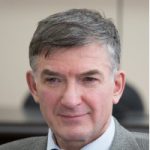 Mikhail Strikhanov
Mikhail Strikhanov
Rector, National Research Nuclear University MEPhI (Russia)
In 1998 Mikhail Strikhanov was appointed the Head of R&D Department in the Ministry of Education and Science. In 2003-2004 he served as Deputy Minister of Education of the Russian Federation. In 2004-2007 he was Deputy Director of Department for Governmental S&T innovative policy of the Ministry of Education and Science of Russia.
In 2007 Mikhail Strikhanov was elected for the position of the Rector of MEPhI. He was reelected in 2010 and 2014 (as recommended by MEPhI supervisory board). Under his governance in 2007 MEPhI became one of the winners of the contest among universities applying innovative educational programs organized by Ministry of Education and Science of the Russian Federation. In 2008 MEPhI was transformed into National Research Nuclear University (NRNU MEPhI). In 2013 MEPhI was selected as one of 15 winners for participation in Russian Academic Excellence Project 5-100.
Mr. Strikhanov is Chairman of the Advisory Council oh Higher and Postgraduate Education of the Committee of the State Duma of the Russian Federation, Vice Chairman of the Council on Awards of the Government of the Russian Federation in the Sphere of Education, and Member of the Scientific Council of the Security Council of the Russian Federation.
 Thomas Parker
Thomas Parker
Senior Associate, Institute for Higher Education Policy (USA)
A widely respected expert on higher education and non-profit management, Thomas D. Parker is Senior Associate at the Institute for Higher Education Policy (IHEP). He works on IHEP portfolio of projects in domestic and international higher education finance and administration.
Parker has nearly 40 years of experience in higher education management, policy, and finance. He began his career at Harvard University, where he served in several capacities including secretary to the Visiting Committees of the Board of Overseers and assistant to the dean of the Graduate School of Education. Subsequently he served as vice president of Bennington College in Vermont. He also taught higher education finance and the history of higher education for 15 years at Boston University. His international consulting experience in higher education spans from China, Vietnam, and Thailand to the United Kingdom. He holds Ed.D., M.A.T, and A.B. degrees from Harvard University.
 Stephane Berghmans
Stephane Berghmans
Vice President Academic & Research Relations, Europe, Elsevier
 Waldemar Siwiński
Waldemar Siwiński
President, Perspektywy Education Foundation, Vice-President of IREG Observatory (Poland)
Waldemar Siwiński graduated from the Faculty of Electronics of the Warsaw University of Technology; he also studied at the postgraduate School of Diplomacy in Warsaw. Waldemar Siwinski has considerable experience as author of professional rankings. He prepared over 40 rankings of universities, business schools and secondary schools in Poland. WS has extensive and rich media background as writer, journalist and manager. WS served as president of the Polish Press Agency (PAP). WS was bureau member of the European Alliance of News Agencies (EANA); board member of the European PressPhoto Agency (EPA); member of the International Press Institute. He was also Chairman of the Conference of Polish Media. As President of Perspektywy Foundation WS is active in Academic Cooperation Association (ACA).
Mr. Siwinski founded and headed for several years “Perspektywy Press”, a publishing and marketing company specializing in education. In October 2009, WS was elected Vice President of the IREG Observatory on Academic Ranking and Excellence.
 Gero Federkeil
Gero Federkeil
U-Multirank (Germany)
He is responsible for CHE ranking and international ranking activities at CHE, including the U-Multirank project funded by the European Union. In October 2009, he was elected Vice-President of the IREG Observatory on Academic Ranking and Excellence.
He is an internationally recognized expert in the field of rankings. His main fields of work and publications include rankings, performance indicators, benchmarking, quality assurance and issues of employability/ university – labour market relations. He is a member of the German Association of Evaluation and a team member of the CHERPA Network.
Before joining the CHE in 2000 he worked for seven years for the German Council of Science and Humanities in the field of higher education policy, investments in higher education, evaluation and university medicine.
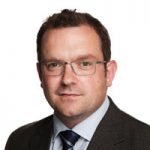 Ben Sowter
Ben Sowter
Head of the QS Intelligence United Kingdom [QS World University Rankings]
Ben spent two years working for the UK national office of international student charity, AIESEC, for which he was ultimately elected National President. Ben leads the QS Intelligence Unit who are fully responsible for the operational management of all major QS research projects including the QS Top MBA Applicant and Recruiter Research, the QS World University Rankings® and the QS Asian University Rankings.
Ben has travelled to over 40 countries and spoken on his research in over 20. He has personally visited over 35 of the world’s top 100 universities amongst countless others and is also a regular speaker on the conference circuit.
 Robert J. Morse
Robert J. Morse
Director of Data Research, U.S. News & World Report, United States [Best Global Universities Ranking]
Robert Morse is in charge of producing the America’s Best Colleges, the America’s Best Graduate Schools and America’s Best High Schools rankings all of which are published annually by U.S. News & World Report. He takes the lead role in survey design, ranking methodology changes and higher education research as well as monitoring data collection.
Mr. Morse developed most of the current methodologies that are used in the America’s Best Colleges and America’s Best Graduate Schools ranking projects and has been working full-time on both the America’s Best Colleges and America’s Best Graduate Schools publications starting in 1989. U.S. News has published the America’s Best Colleges rankings annually starting in 1987. Mr. Morse is the author of a widely read blog on academic rankings called Morse Code Inside the College Rankings. Mr. Morse is a founding member and is on the Executive Committee of the International Ranking Experts Group.
Cengiz Acartürk, Middle East Technical University, Turkey [URAP – University Ranking by Academic Performance]
 Dmitry Grishankov
Dmitry Grishankov
President, RAEX Rating Agency (Russia)
Mr. Grishankov is the General Director of International Group of rating agencies “Expert RA” and the science editor of «Expert» magazine. He is leading the development of university ratings in Russia and CIS as well as ratings of the companies, banks and regions. He serves as an expert for the Central Bank of Russian Federation and several ministries.
He is a graduate of the Moscow Aviation Institute and author of more than three hundred publications.
 Bernard Remaud
Bernard Remaud
President, European Network for Engineering Accreditation “ENAEE” (France)
Bernard Remaud was Executive President of CTI (Commission des Titres d’Ingénieur, France) from 2006 to 2012. CTI is the French accreditation institution for engineering degree programmes in France. While at CTI, Mr. Remaud worked to adapt CTI (created in 1934) to the new European Higher Education Area, to develop CTI activities at large and to promote the EUR-ACE label (more than 300 labels awarded in France and in other countries). He has served on the ENAEE Administrative Council since 2012.
Mr. Remaud is Professor Emeritus at the University of Nantes from which he graduated with a doctorate in Nuclear Physics in 1971. He served as Dean of two Engineering Graduate Schools, respectively IRESTE (University of Nantes) which specialized in Electronics and Computer Engineering, from 1995 to 2000; and at the Polytech’Nantes from 2000 to 2005 where he established a multidisciplinary engineering graduate school. It became the template for a network of 13 such postgraduate schools in France.
 Hassan Rashid Al-Derham
Hassan Rashid Al-Derham
President of Qatar University
Dr Al-Derham assumed the position on 15 June 2015. He was previously Vice-President for Research from 2007 during which he guided QU to its current position as leader of research excellence in the GCC region, which was enhanced by its continuous success in winning the largest percentage of grants in the National Priorities Research Program (NPRP) and Undergraduate Research Experience Program (UREP) under the Qatar National Research Fund (QNRF).
He also served in several earlier roles at QU including Associate VP for Research and Head of Civil Engineering at the College of Engineering. He holds a PhD and Post-Graduate Diploma in Construction Project Management from University of South Wales, UK which followed obtaining a Master’s Degree in Civil Engineering from Georgia Tech, USA. His undergraduate is in Architectural Engineering from North Carolina Agriculture and Technical State University, USA.
 Anne-Marie Jolly
Anne-Marie Jolly
Professor Emeritus in University of Orleans, Member of French Accreditation Commission for Engineering Commission des Titres d’Ingénieur (CTI)
Ms. Jolly is Doctor Engineer and now Professor Emeritus in University of Orleans, she still makes researches on Smart Buildings. Anne-Marie Jolly was Dean of Polytech Orleans till 2012. Then in 2012, she became one of the 12 academic members of the French Accreditation Commission for Engineering Commission des Titres d’Ingénieur (CTI). In 2014 she became vice president of this commission and responsible for Quality Assurance. Ms. Jolly is also member of GEDC and SEFI and till November 2017 was member of AC of ENAEE.
 Thorsten Kliewe
Thorsten Kliewe
Chair, Accreditation Council for Entrepreneurial and Engaged Universities (The Netherlands)
Prof. Dr. Thorsten Kliewe is an international expert on the topics of entrepreneurial and engaged universities, collaborative innovation and change management in higher education institutions. He is passionate about fostering the interaction between academia and business to create economic and social impact. Professor Kliewe is the Founder and Chair of the Accreditation Council for Entrepreneurial and Engaged Universities (ACEEU, www.aceeu.org) which promotes cultural change and organisational development in higher education institutions by offering the world’s first accreditation system for entrepreneurship and engagement at institutional level. He is also Co-founder and Chairman of the University Industry Innovation Network (UIIN, www.uiin.org), an Amsterdam-headquartered network with more than 200 members from 25+ countries. He is a Full Professor for Innovation Management and Business Development at Münster Business School at Münster University of Applied Sciences (MUAS) in Germany and the Deputy Director of the Science-to-Business Marketing Research Centre (S2BMRC, www.science-marketing.com) at MUAS.
 Marek Pawelczyk
Marek Pawelczyk
Vice Rector for Science and Development, Silesian University of Technology (Poland)
Professor at the Silesian University of Technology , Vice-President for Professional Relations of the International Institute of Acoustics and Vibration (IIAV) . For many years he has been co-organizing scientific congresses, he hasbeen a member of scientific committees of 45 international conferences. A member of the Automation and Robotics Committee and the Academy of Acoustics of the Polish Academy of Sciences. He is a member of three scientific committees at the International Federation of Automatic Control, and Chairman of the Chapter of Honorary Ambassadors of Polish Congresses. Author and co-author of 175 scientific publications and three monographs in English.
 Euiho Suh
Euiho Suh
Associate Vice President, DGIST; President, URFK (Republic of Korea)
Dr. Euiho Suh (Ph.D. UIUC, MS Stanford/KAIST, BS SNU) is the Assoc Vice President for Strategy & Excellence of DGIST. For 28 years, he has been a professor at Dept of Industrial Eng. of POSTECH in charge of globalization & visibility of POSTECH. He is also advising two IREG members, University of Ulsan and Sejong University, along with KHU and Y’SU in Korea.
Dr. Suh is a nationally known scholar in university competitiveness and global visibility and has been elected as President of URFK(University Ranking Forum of Korea). He is an active participant and presenter at the conferences such as IREG, QS-APPLE/World Class, THE summits, NAFSA, and APAIE with special interests in university rankings and global visibility.
 Palak Sheth
Palak Sheth
Director, Eduprogress & Reasearch Pvt. Ltd., Gujarat (India)
Palak Sheth, Ph.D. is founder Director of Eduprogress & Research, a management consulting firm focused on Education, Research, Skill Development, and set up Centre of Excellence.
He has more than 18 years experience in setting up Higher Education Institutions and Universities in India. He has worked in setting up new Institutions including Pandit Deendayal Petroleum University, Plastindia International University, Indrashil Lifescience University, to name a few.
He has also worked in Government of Gujarat in areas of Energy, Education, and Industrial Development.
His research interests include Higher Education Policy & Implementation, University Governance, Financial Sustainability, and Internationalization.
 Alexandra Pontes
Alexandra Pontes
Expert in Quality issues, IST Institutional Studies, Planning and Quality Office, Técnico Lisboa Rankings Observatory (Portugal)
Ms. Pontes earned her degree in Agronomic Engineering in 1990 and her master’s degree in Quality Management in 2000. She has been acting as trainer in the area of quality management within Universidade Aberta Unit of Lifelong Learning and developed different projects and studies within the Office for Strategic Development and International Relations. As an expert in Quality issues, she supports IST Institutional Studies, Planning and Quality Office in the Evaluation and Strategic Planning area, actively participates in several projects such as SUMUP – Strategic University Management, PEOPLE-Promoting Educational Organization through peoPLE (EU-Tempus) Unfolding Practices (EU-LLP) and ROAD – Regional Objectives of Administrative Development (Erasmus +).
 Carlos Carvalho
Carlos Carvalho
Translator, Member of the Studies and Projects Unit (E&P), Técnico Lisboa Rankings Observatory (Portugal)
Mr. Carvalho has developed different activities related to the internationalisation of Técnico Lisboa, in particular drafting proposals for international projects such as FOLLOW (Promotion and Follow-up of graduate Employability in HEs) and REDEEM (Reforming Dual Degree Programmes for Employability and Enhanced Academic Cooperation). He has specialized in monitoring and analyzing international university rankings since 2016. Carlos Carvalho earned an ERASMUS+ Staff Mobility Grant and will be in AUA (American University of Armenia) for a week period to exchange experiences on Employability and Rankings, 18-22 June 2018; He has been invited by ASEUC (Associacion de Editoriales Universitarias de Colombia) Systems for Evaluating Scientific Production and their Effects on Science and University Publishing.
 Rui Zhang
Rui Zhang
Director of the Evaluation Center for World First Class Universities and Disciplines, China
Dr. Rui Zhang graduated from Wuhan University, and got her PhD degree of information resources management. She is visiting scholar of Indiana University, USA. She now works in Hangzhou Dianzi University in China, and is the director of the Evaluation Center for World First Class Universities and Disciplines. She has published more than 20 papers in Chinese and English, articles, book chapters and reports in the areas of higher education evaluation and rankings, information management, knowledge management and scientific evaluation in local and international referred journals.
 Illahi Bakhsh Marghazani
Illahi Bakhsh Marghazani
Director, Quality Enhancement Cell (QEC) Lasbela University of Agriculture, Water and Marine Sciences, Uthal, Pakistan
Dr. Illahi Bakhsh Marghazani is the Full Professor, Director of Quality Enhancement Cell in Lasbela University of Agriculture, Water & Marine Sciences (LUAWMS), Uthal, Pakistan. He has more than 17 years experience in research teaching and governance. Since last three and half years, he has been given responsibility of Directorate of Quality Assurance in LUAWMS. He uplifted the functionality of this directorate and made it as the most vibrant directorate of the university. As being prolific researcher and writer, he has published more than 35 research articles in peer reviewed national and international journals and also own many extension articles in his name. He has represented LUAWMS in quality assurance relevant events at national and international levels.
 Caroline Friedhoff
Caroline Friedhoff
Project Manager, U-Multirank (Germany)
Caroline Friedhoff is working as a project manager in the multidimensional university ranking U-Multirank at the Centre of Higher Education in Germany. Previously, she was a research fellow at the Department of Political Science at the University of Hagen. For her undergraduate and postgraduate degrees, she studied sociology with a focus on quantitative methods at the University of Göttingen and the Bielefeld University.
 András Telcs
András Telcs
Scientific advisor, Hungarian Academy of Sciences, (Hungary)
Scientific advisor at the Hungarian Academy of Sciences, head of Department of Computational Sciences, WIGNER Research Centre for Physics, Associate Professor at Department of Computer Science and Information Theory, Budapest University of Technology and Professor at Department of Quantitative Methods, Faculty of Economics, University of Pannonia, Veszprém.
By profession he is mathematician. He won a five years grant (2017-2022) from the Hungarian Academy of Sciences to develop a methodology of a characteristic-sensitive ranking of non-elite universities. The “Budapest Ranking Research” project is hosted by University of Pannonia. Telcs was head of a research group supported by the grant of the Hungarian Brain Research Program I., and member of the same group of HBRP II. hosted by WIGNER CFP. His core research areas are probability theory, stochastic processes, random walks on graph, fractal like structure, but not limited to that. He has publications in the field of scientometrics, econometry, statistics and data mining of financial data and social networks.
 Guleda Dogan
Guleda Dogan
Research Assistant, Hacettepe University (Turkey)
From 2008 Ms. Guleda Dogan has been working as Research Assistant at Department of Information Management at Hacettepe University. Her research areas include research methods, data analysis, bibliometrics, scholarly communication, open access, university rankings. Ms. Dogan holds Ph.D. from Department of Information Management, Hacettepe University. Title of her Doctoral Thesis was Evaluation of Academic Performance Oriented International University Ranking Systems Based on General Rankings and Criteria.

